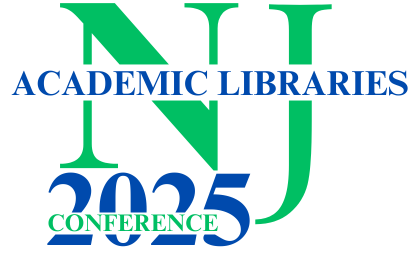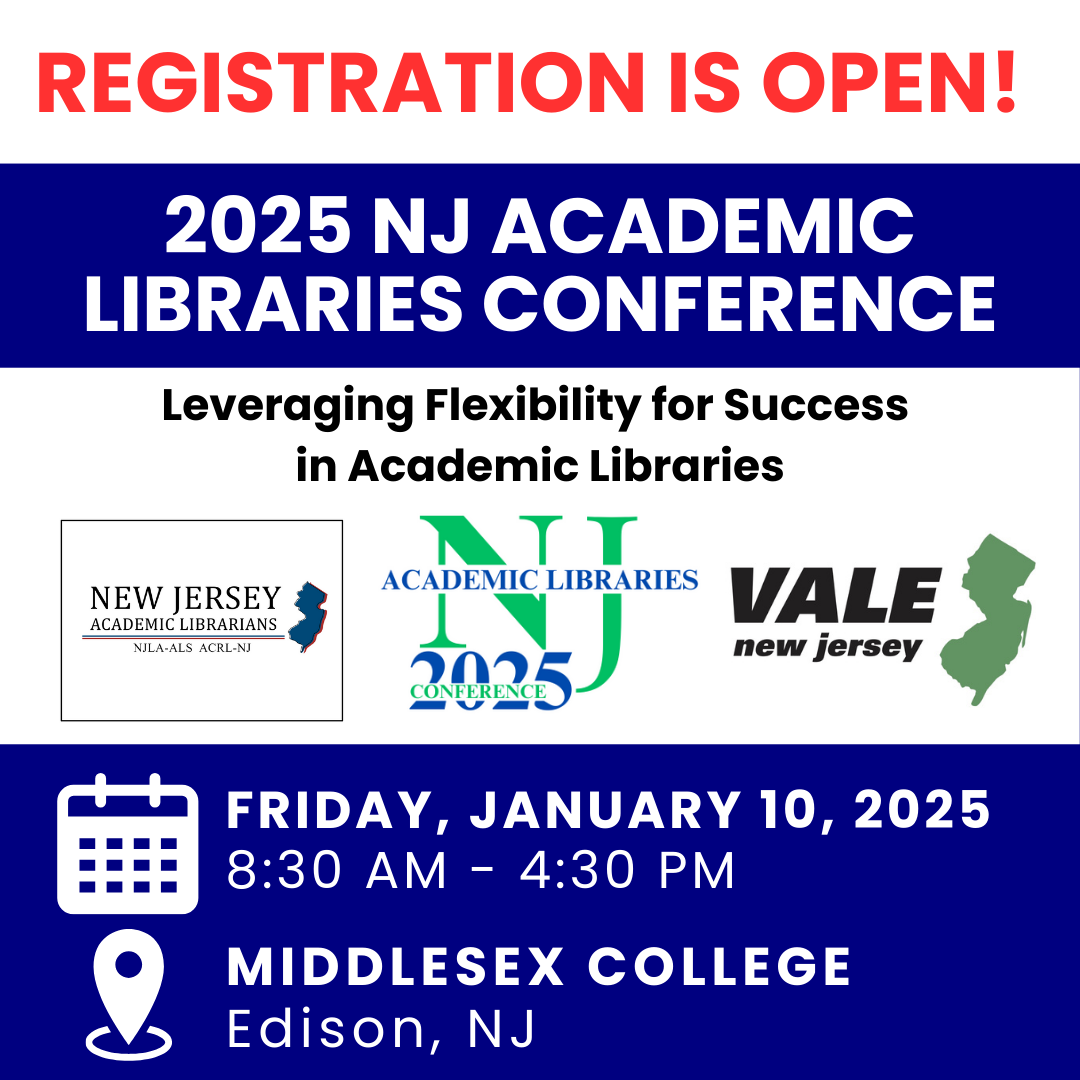Fall 2024 NJAL Newsletter
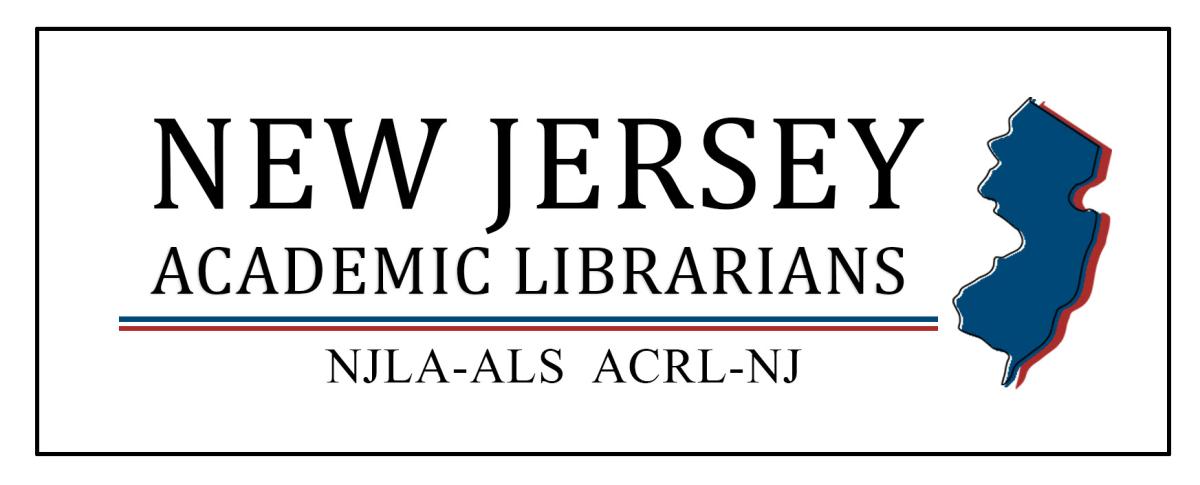
Newsletter
From the President
By Maria Deptula
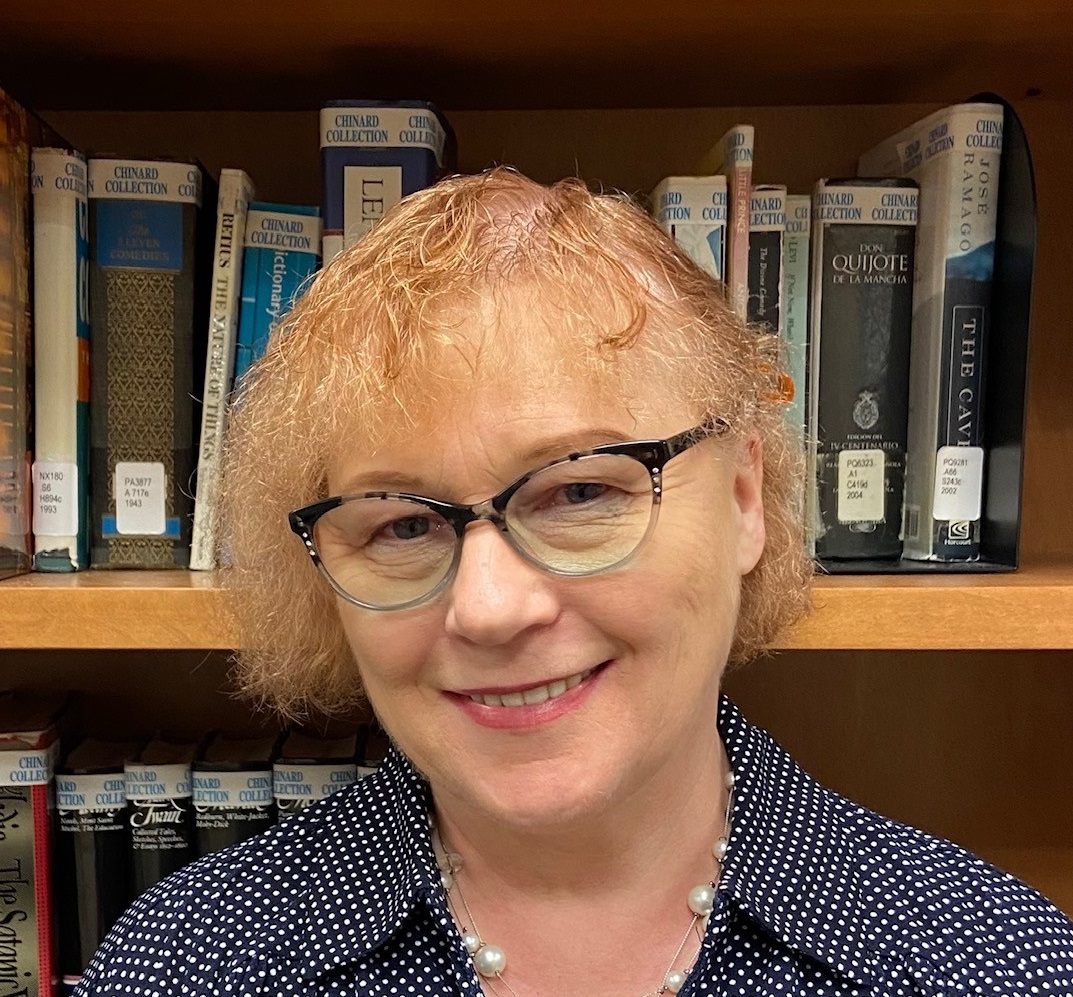
Yes, we did it! I'm thrilled to share the following announcement. We finally changed the alphabet-soup-like name of our organization. During the College & University Luncheon at the NJLA Conference in Atlantic City, members voted to amend the Bylaws and adopt a new, simplified name: New Jersey Academic Librarians (NJAL), replacing the previous long acronym NJLA-CUS / ACRL-NJ.
To further enhance inclusivity, NJAL now offers three tiers of individual membership, welcoming all New Jersey academic librarians, including those who are not members of NJLA or ACRL.
As an organization, we embraced the new school year with a fresh wave of enthusiasm. It was wonderful to see over 50 current and new members who joined us for the hybrid Open Membership meeting. Thank you to Ewa Dziedzic-Elliot (Education Librarian, TCNJ) and Lisa Bogart, (Director, NHC Library, HCCC) for updating the attendees on the state of book banning in New Jersey. While introducing the organization’s existing committees, we also welcomed colleagues interested in forming new special interest groups, such as AI, Access Services, and OER. If you’re interested in joining any of our committees or the new interest groups, please keep an eye out for announcements on the listservs.
We have some exciting work ahead! The Executive Board is currently in the process of selecting and approving a new logo, which we hope to launch soon on our website and social media channels. Additionally, we are continuing our collaboration with our sister organizations, NJLA and the New Jersey Association of School Librarians (NJASL), particularly in the areas of professional development, and networking. Stay tuned for updates!
Our annual conference is approaching, and it will again take place on the hospitable grounds of Middlesex College in Edison. The theme of the 2025 NJ Academic Libraries Conference is Leveraging Flexibility for Success in Academic Libraries. The 2025 NJ Academic Libraries Conference Planning Committee secured an AI expert as the keynote speaker, and we hope to inspire you with many breakout sessions and poster presentations. I look forward to seeing you there.
Thank you for your contributions to driving these exciting changes. It is an honor to serve as your President this year.
Maria Deptula is the Collection Librarian at the George F. Smith Library of the Health Sciences at Rutgers University. She can be reached at mdeptula@libraries.rutgers.edu.
In This Issue...
- From the President
- Announcements
- VALE Updates
- William Paterson University’s Real Men Read program Wins 2024 Library of Congress Literacy Award
- We Can Teach That: Information Literacy for School Librarians
- Passage of Freedom to Read Act
- From the Newsletter Archives
- Creating a Sensory-Friendly Study Space at Your Academic Library
- Putting the ‘I’ in Inclusion
- Updating the NJ Information Literacy Progression Standards
-
Special Section: Artificial Intelligence in Academic Libraries
- The NJAL Artificial Intelligence Special Interest Group
- AI in Action: An Informal Approach to AI & Information Literacy
- Creating Clarity: Developing Stockton University’s Generative AI Guide
- Taylor Memorial Library Celebrates 70th with Bewitching Birthday Bash
- Report from SCARLA
- Staff Representation and Partnerships in the Academic Library
VALE Updates
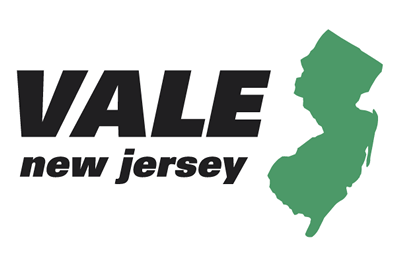
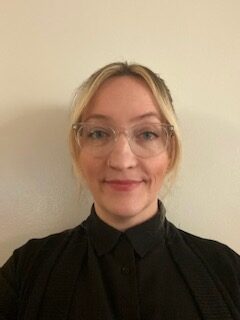
Registration is now open for the 2025 New Jersey Academic Libraries Conference, which will return to Middlesex College in Edison, NJ on Friday, January 10, 2025. The conference theme is Leveraging Flexibility for Success in Academic Libraries. We are excited to announce that our keynote speaker will be Edward Tian, CEO and co-founder of GPTZero, the first platform for detecting AI-generated text. Tian graduated from Princeton University with a degree in Computer Science and worked in journalism at Bellingcat and the BBC. Details and registration information can be found on the conference website.
We are pleased to announce the new and returning members of the Executive Committee (EC) who were elected at the June 13, 2024 Members’ Council meeting and will serve through June 2026: Janet Hauge, Atlantic Cape Community College (Community College); Jane Jiang, Union College of Union County, NJ (Community College); Evelyn Frangakis, Princeton Theological Seminary (Independent); and David Marks, Bergen Community College (Members’ Council Moderator).
We also extend a warm welcome to the FY25 VALE Officers, who will serve July, 2024 - June, 2026: Marilyn N. Ochoa, Library Services Director at Middlesex College, assumed the VALE Chair seat after serving as Vice Chair/Chair Elect for FY24; Ann Hoang, University Librarian at New Jersey Institute of Technology, transitioned from VALE Chair to Past Chair after completing a two-year term; Robert Hilliker, Associate Provost, Library Administration at Rowan University, has been elected Vice-Chair/Chair Elect of the Executive Committee. Taras Pavlovsky, The College of New Jersey, has stepped down as Treasurer and will now serve as Member-at-Large of the Executive Committee for a two year term. In the interim, Marilyn Ochoa and Ann Hoang, will serve as Interim Treasurers for the remainder of FY25.
Finally, we are excited to welcome a new VALE member institution, Hackensack Meridian School of Medicine, which will be represented on the Members’ Council by Christopher Duffy, Associate Dean, VP, Medical Library Services. A complete list of VALE member institutions can be found on our website.
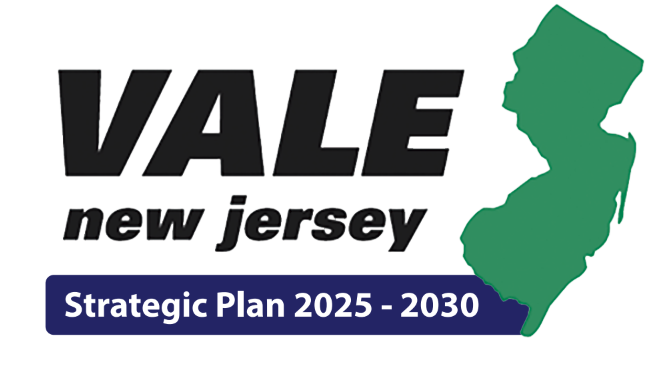
The VALE Strategic Planning Task Force hosted a retreat at Kean University on July 19, 2024, where, in partnership with Strategic Planning Consultant Amanda Standerfer of Fast Forward Libraries, they developed a draft of the 2025-2030 Strategic Plan. An open comment period took place in September, and the plan was officially approved by the Members' Council on November 7, 2024. The final Strategic Plan is available for viewing on the VALE website.
The Professional Development Task Force conducted a VALE Leadership Development survey and is collaborating with the Planning & Assessment Committee to analyze and process the data collected through the Qualtrics survey.
A new Special Interest Group for Community College Administrators has been approved by the Executive Committee. The goal of this group is to increase information sharing and networking opportunities for the community college library administrators. You can find more information about our Standing Committees, Task Forces, and Special Interest groups on our website.
VALE’s Overdrive Academic Shared Library, launched on September 1, 2024, is a custom collection selected from OverDrive’s online marketplace catalog of over 500,000 eBooks and audiobooks. Current participating libraries include Kean University, Rowan College at Burlington, Rowan College of South Jersey - Gloucester, and Salem Community College.
Keep an eye on the VALE listserv for upcoming product demos and trials! VALE will continue to partner with vendors to offer product demonstrations and information sessions. You can access recordings of past demos and recordings here.
Ali Cole, MSLIS (she/her/hers) | VALE Program Manager | VALE Social Media Links
alison.cole@valenj.org | C: 201-268-1513 (call or text) | W: 855-832-EDGE (3343)
William Paterson University’s Real Men Read program Wins 2024 Library of Congress Literacy Award
William Paterson University’s Real Men Read program was selected as one of five honorees in the “emerging strategies” category of the 2024 Library of Congress Literacy Awards, “for demonstrating significant creativity and promise in its approach to literacy relative to its early stages of development,” writes Librarian of Congress Carla Hayden.
Neil Grimes who created the program as an academic library literacy outreach program in 2020 accepted the award on behalf of William Paterson University on Wednesday, October 30, 2024 at the Library of Congress. The press release announcing the 2024 Library of Congress Literacy Award winners may be found here. See below for a photo of all 2024 Library of Congress Literacy Award winners. Since its inception, male faculty, staff, and student readers at William Paterson University have read to over 5,000 students in Pre-K--6th grade as part of Real Men Read.
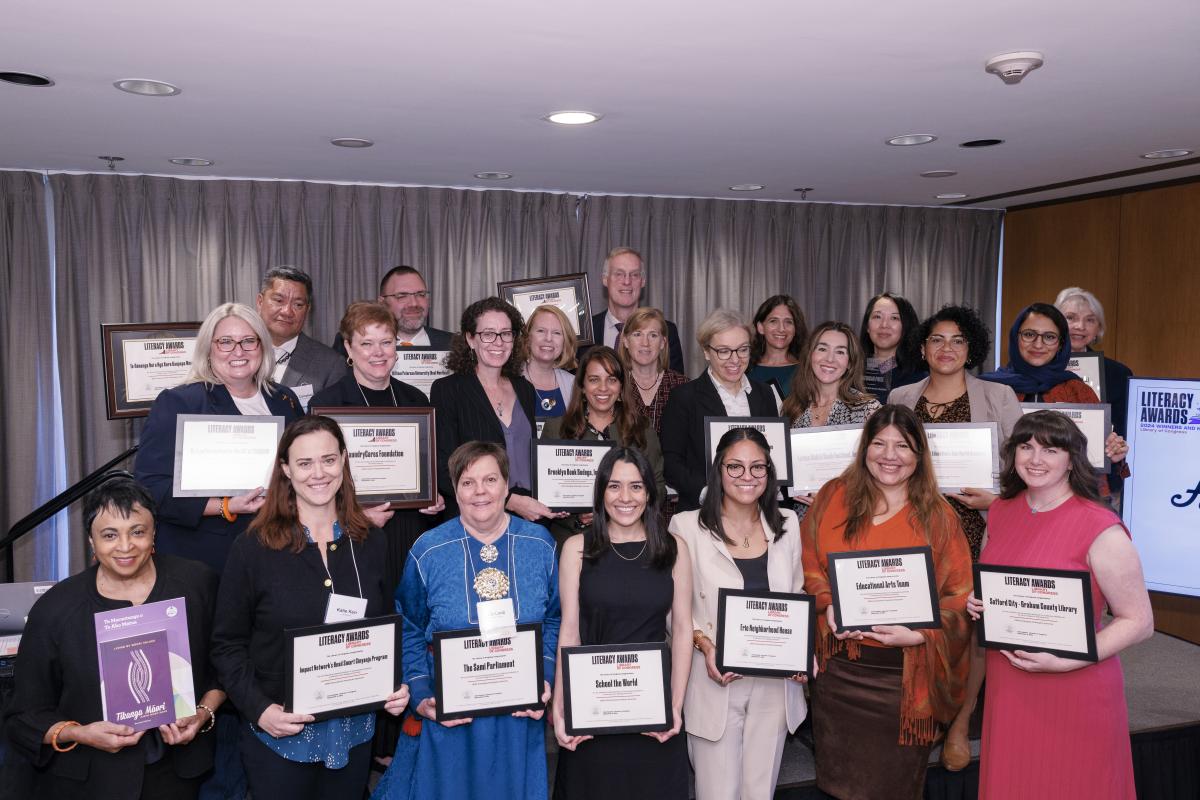
Neil Grimes (top row, second from left) accepts the Library of Congress Literacy Award on behalf of William Paterson University.
We Can Teach That: Information Literacy for School Librarians
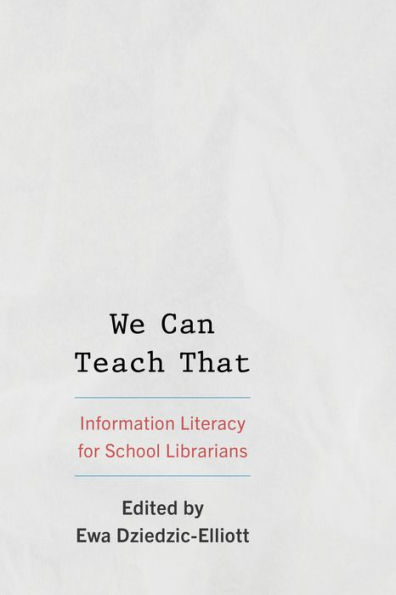 Ewa Dziedzic-Elliott (TCNJ) announces the publication of the book We Can Teach That: Information Literacy for School Librarians, featuring chapters by other New Jersey librarians, including Gary Marks and Neil Grimes (William Paterson University) and Brenda Boyer (Rutgers University SCI). The book provides best practices regarding the teaching of information literacy and it is aimed at a broad audience including educators, school administrators, and public librarians.
Ewa Dziedzic-Elliott (TCNJ) announces the publication of the book We Can Teach That: Information Literacy for School Librarians, featuring chapters by other New Jersey librarians, including Gary Marks and Neil Grimes (William Paterson University) and Brenda Boyer (Rutgers University SCI). The book provides best practices regarding the teaching of information literacy and it is aimed at a broad audience including educators, school administrators, and public librarians.
Editor Dziedzic Elliott explains, “Information Literacy is a very complex topic. We are not creating new definitions, or trying to find best ways to describe/explore it. We are merely sharing our professional experiences and stating a fact: you don’t have to look for IL specialists if you have librarians! There are many IL centered publications. In this book, school librarians, academic librarians and library scholars come together to share their best practices, research perspectives and educational expertise making this book to be the most comprehensive take on IL.”
We Can Teach That is available for pre-order. Ordering information and the Table of Contents are available here.
Want to learn more about what's happening in New Jersey with information literacy? Check out these resources:
From the Newsletter Archives
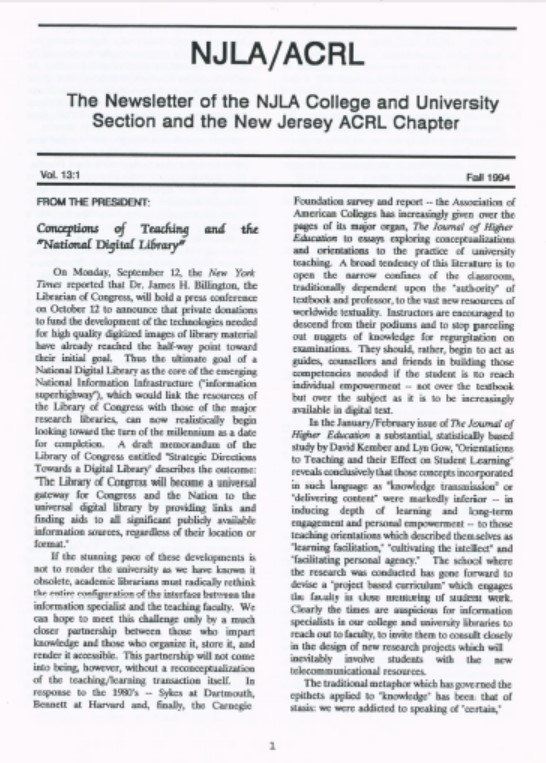 Travel in time back to Fall 1994 when the World Wide Web was in its infancy, and the possibilities for our profession were endless. As our chapter’s former president discussed, the Library of Congress was embarking on providing digital access and finding aids to all types of public information. This new way of obtaining information had implications for teaching and learning, as well as librarians’ relationships with teaching faculty. This continues today. Enjoy the issue!
Travel in time back to Fall 1994 when the World Wide Web was in its infancy, and the possibilities for our profession were endless. As our chapter’s former president discussed, the Library of Congress was embarking on providing digital access and finding aids to all types of public information. This new way of obtaining information had implications for teaching and learning, as well as librarians’ relationships with teaching faculty. This continues today. Enjoy the issue!
Announcements
Bergen Community College
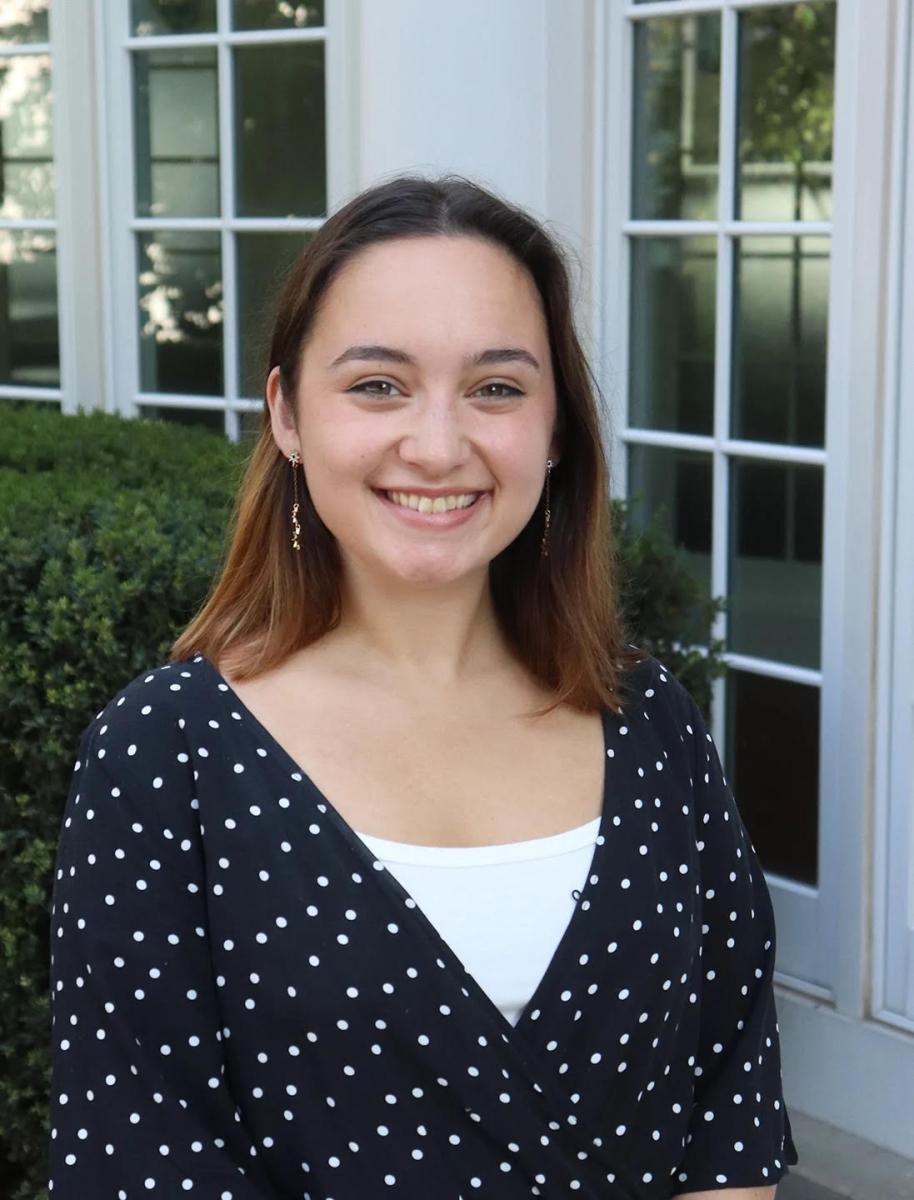 Abby Henkel joined the Sidney Silverman Library at Bergen Community College as a Copy Cataloging Assistant in October 2024. She is currently enrolled in the Master of Information program at Rutgers University with a concentration in Library and Information Science. She plans to graduate this winter.
Abby Henkel joined the Sidney Silverman Library at Bergen Community College as a Copy Cataloging Assistant in October 2024. She is currently enrolled in the Master of Information program at Rutgers University with a concentration in Library and Information Science. She plans to graduate this winter.
Joan Dalrymple was promoted to Professor in July. She is a reference and instruction librarian.
Ramapo College of New Jersey
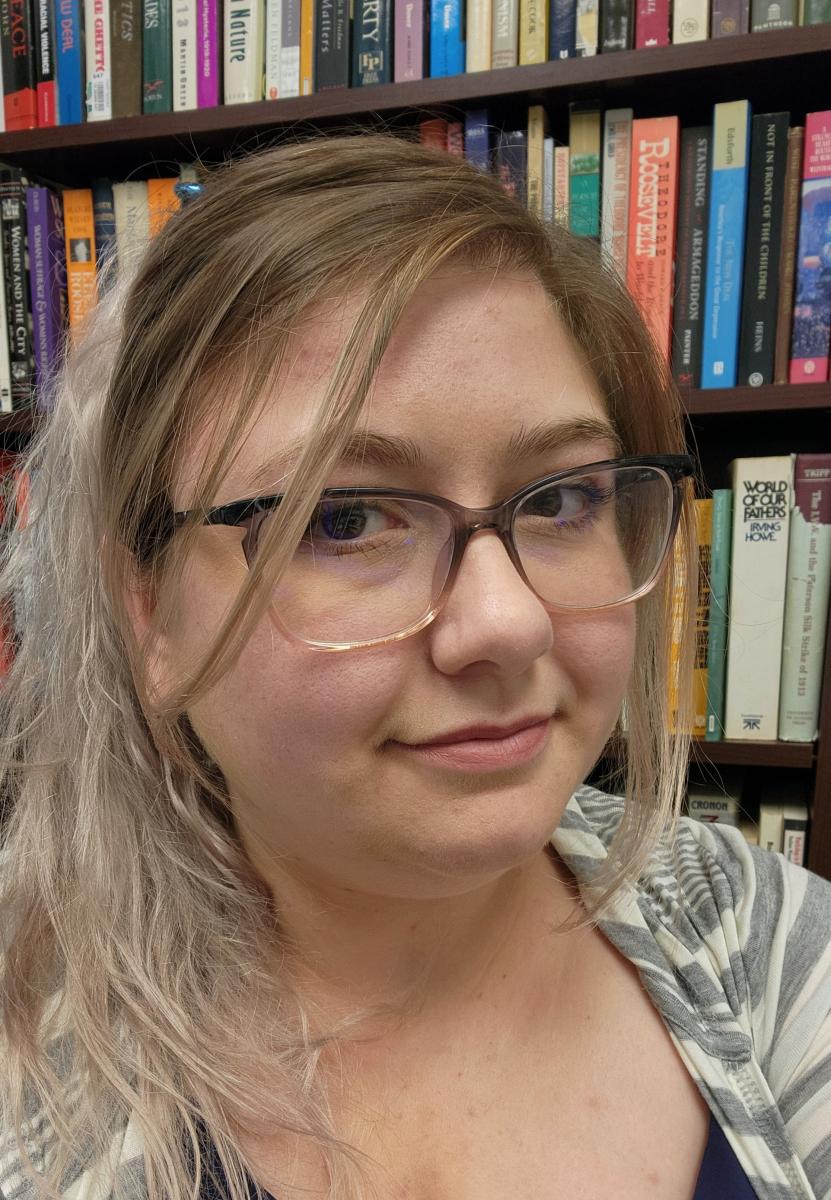 Victoria Sciancalepore joined the George T. Potter Library at Ramapo College of New Jersey as their Digital Scholarship Librarian in July 2024. She brings experience from the Jane Addams Papers Project, a documentary editing project also at RCNJ, where she was the Assistant Editor. Victoria is excited about data visualization and the implementation of artificial intelligence in higher education pedagogy and learning.
Victoria Sciancalepore joined the George T. Potter Library at Ramapo College of New Jersey as their Digital Scholarship Librarian in July 2024. She brings experience from the Jane Addams Papers Project, a documentary editing project also at RCNJ, where she was the Assistant Editor. Victoria is excited about data visualization and the implementation of artificial intelligence in higher education pedagogy and learning.
Rider University
Heather Dalal has been promoted to Professor-Librarian. Heather recently published the following article: Monnier, R., & Dalal, H. (2024). Peer Mentoring in Academic Librarianship: Service and Connections can Lead to Improved Scholarly Output. Endnotes: The Journal of the New Members Round Table, 12(1), 37-46. The article is available here.
Rutgers University
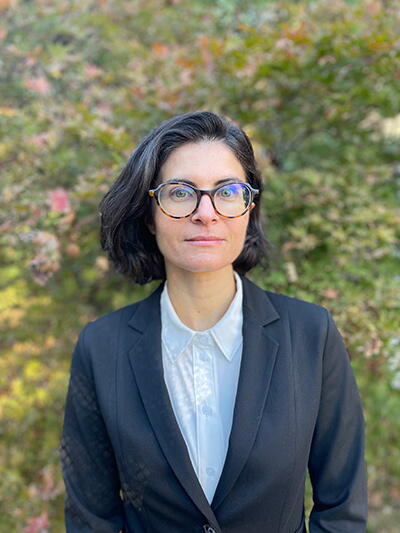 Caroline Muglia (she/her) joined Rutgers University Libraries (RUL) as the inaugural Associate Vice President for Campus Libraries in January 2024. She serves as the deputy chief administrator for RUL and provides leadership and direction for the system-wide libraries distributed across New Jersey. Prior to her role at RUL, Ms. Muglia served as the Associate Dean for Specialized Collections and Director of the Master of Management in Library and Information Science Program at the University of Southern California in Los Angeles, CA.
Caroline Muglia (she/her) joined Rutgers University Libraries (RUL) as the inaugural Associate Vice President for Campus Libraries in January 2024. She serves as the deputy chief administrator for RUL and provides leadership and direction for the system-wide libraries distributed across New Jersey. Prior to her role at RUL, Ms. Muglia served as the Associate Dean for Specialized Collections and Director of the Master of Management in Library and Information Science Program at the University of Southern California in Los Angeles, CA.
 Tony Nguyen (he/him) joined Rutgers University Libraries (RUL) as the Associate University Librarian, Rutgers Biomedical and Health Sciences Libraries. In this role, he leads Robert Wood Johnson Library located in New Brunswick, and the George F. Smith Library located in Newark. Prior to his role at RUL, Mr. Nguyen served as the Executive Director of the Network of the National Library of Medicine located in Baltimore, MD.
Tony Nguyen (he/him) joined Rutgers University Libraries (RUL) as the Associate University Librarian, Rutgers Biomedical and Health Sciences Libraries. In this role, he leads Robert Wood Johnson Library located in New Brunswick, and the George F. Smith Library located in Newark. Prior to his role at RUL, Mr. Nguyen served as the Executive Director of the Network of the National Library of Medicine located in Baltimore, MD.
Pamela Hargwood, Clinical Librarian at the Robert Wood Johnson Library of the Health Sciences, has been selected to participate in an Association of Academic Health Sciences Libraries professional coaching program.
Caryn Radick, digital archivist in Special Collections and University Archives, competed on Jeopardy!
Seton Hall University
Seton Hall University Libraries has hired two new Health Sciences Librarians, Emily Cerri and Jane Ogora. Both librarians will be located at the Interprofessional Health Sciences campus in Nutley, NJ. 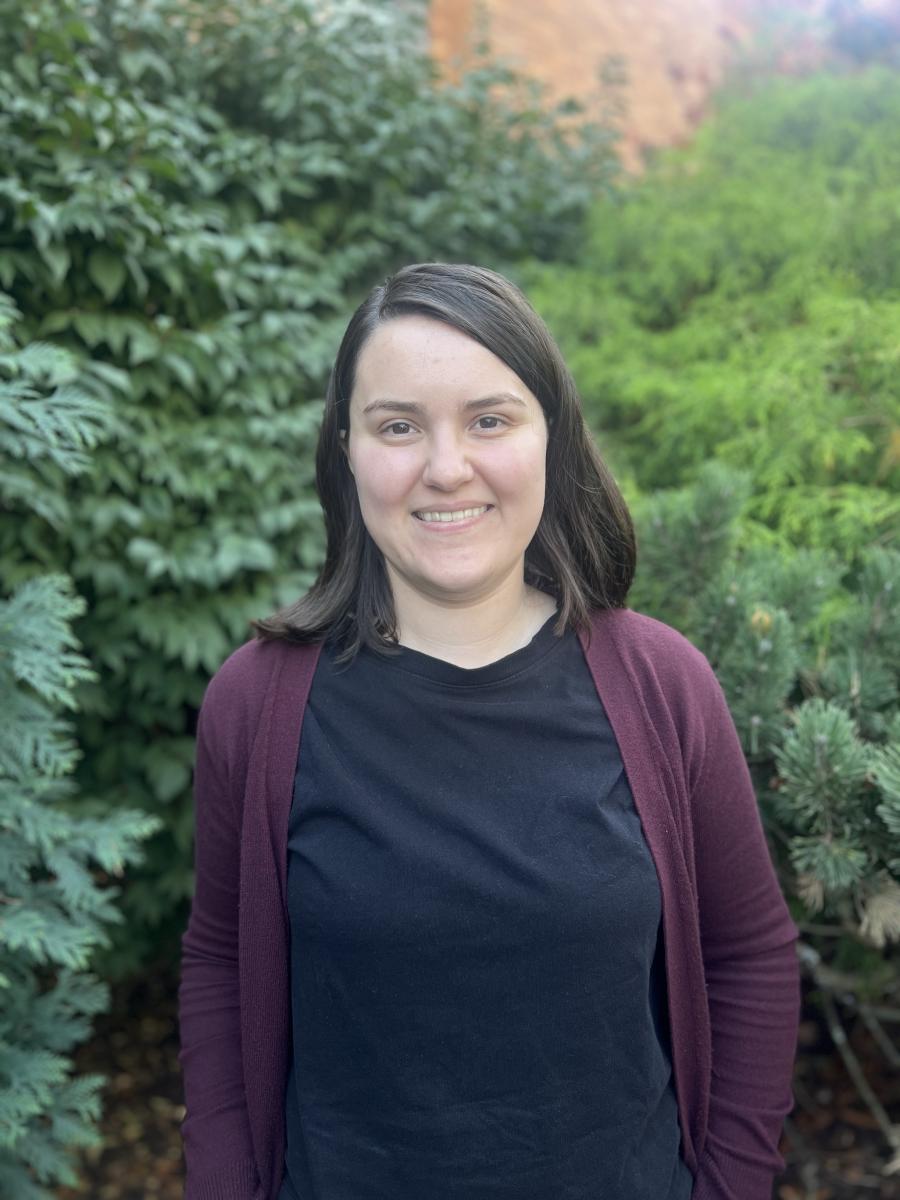
Emily Cerri comes to University Libraries from the Robert Wood Johnson Library at Rutgers and has a Master of Information from Rutgers University.
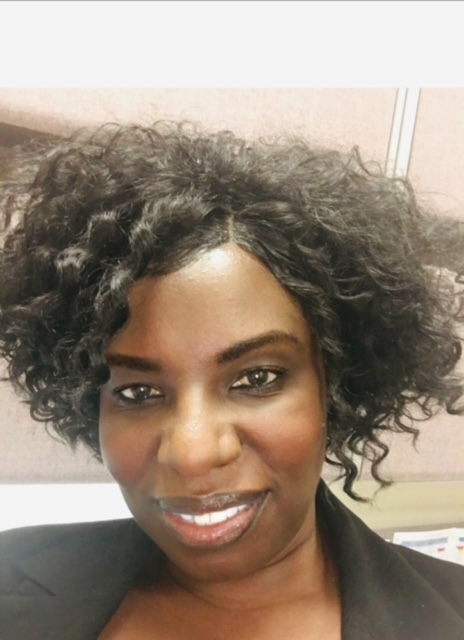 Jane Ogora comes to Seton Hall after ten years at Adventist Healthcare as their Lead Medical Librarian and nine years as an Access Services Librarian at Washington Adventist University. She has an MLIS from Rutgers University and an MBA from Washington Adventist University.
Jane Ogora comes to Seton Hall after ten years at Adventist Healthcare as their Lead Medical Librarian and nine years as an Access Services Librarian at Washington Adventist University. She has an MLIS from Rutgers University and an MBA from Washington Adventist University.
Stockton University
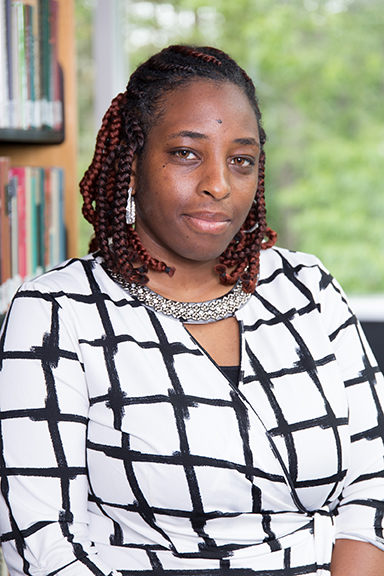 Tiffiny Gipson has been promoted to Assistant Supervisor of Access Services. Tiffiny has been at Bjork Library for seven years, during which time she has advanced through various roles at the Library Service Desk. In May, Tiffany earned her Master's in Instructional Technology with a capstone project titled “Enhancing Information Literacy: A Proposed Solution through Social Media and AI Technology.”
Tiffiny Gipson has been promoted to Assistant Supervisor of Access Services. Tiffiny has been at Bjork Library for seven years, during which time she has advanced through various roles at the Library Service Desk. In May, Tiffany earned her Master's in Instructional Technology with a capstone project titled “Enhancing Information Literacy: A Proposed Solution through Social Media and AI Technology.”
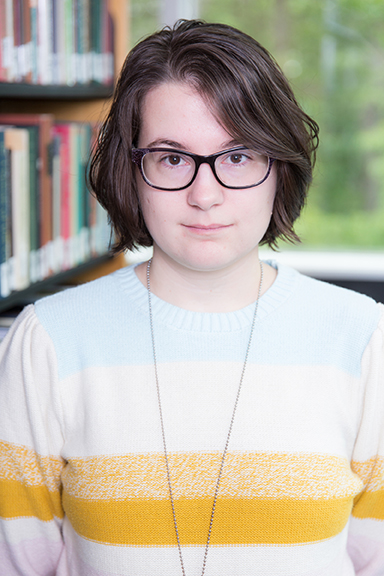 Taylor Devonshire has been promoted to Library Systems Support Specialist after working as a Library Assistant for the past two years.
Taylor Devonshire has been promoted to Library Systems Support Specialist after working as a Library Assistant for the past two years.
Sarah Hanlon [not pictured] has joined the team as Library Assistant. She previously worked in several different libraries and studied in the Literature program at Stockton.
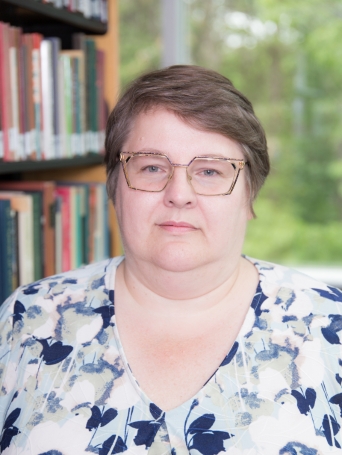
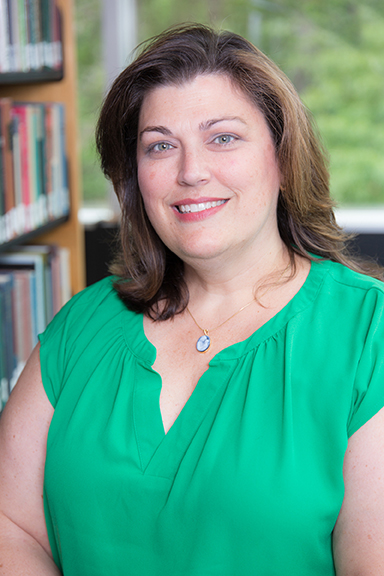 Assistant Director of Systems & Technical Services Natalie Wadley (left) and Cataloger Nicole Barnabei (right) presented at the ExLibris Northeast Users Group (ENUG) conference at Rutgers-New Brunswick. Their presentation "Out with the Old, in with the New! Weeding for Renovation" detailed their library's deaccessioning and downsizing project.
Assistant Director of Systems & Technical Services Natalie Wadley (left) and Cataloger Nicole Barnabei (right) presented at the ExLibris Northeast Users Group (ENUG) conference at Rutgers-New Brunswick. Their presentation "Out with the Old, in with the New! Weeding for Renovation" detailed their library's deaccessioning and downsizing project.
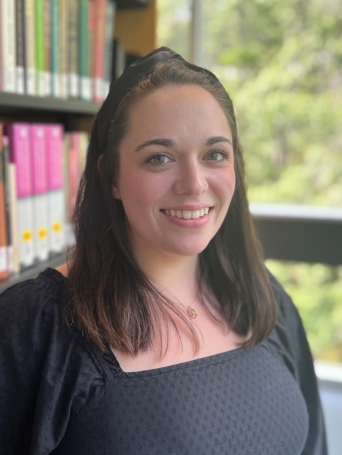 Cheyenne Riehl, Student Success Librarian, published an article "Aren’t we All Student Success Librarians? Defining Your Public Services Role for Your Community (and Your Sanity)" in The International Information & Library Review's "Perspectives on Public Services" column.
Cheyenne Riehl, Student Success Librarian, published an article "Aren’t we All Student Success Librarians? Defining Your Public Services Role for Your Community (and Your Sanity)" in The International Information & Library Review's "Perspectives on Public Services" column.
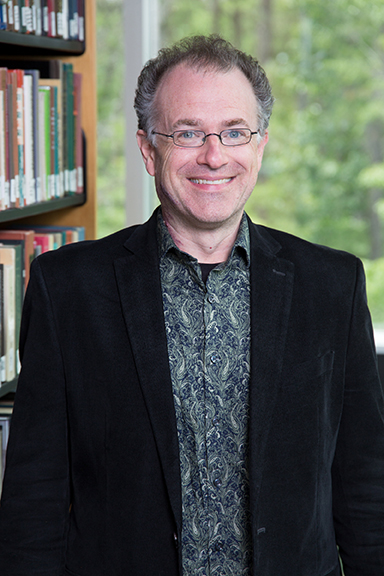 Eric Jeitner, User Experience Librarian, and former Outreach Librarian Christy Goodnight published "Hearing Yourself Think: Ambient Sound in Library Study Spaces" in Weave: Journal of Library User Experience.
Eric Jeitner, User Experience Librarian, and former Outreach Librarian Christy Goodnight published "Hearing Yourself Think: Ambient Sound in Library Study Spaces" in Weave: Journal of Library User Experience.
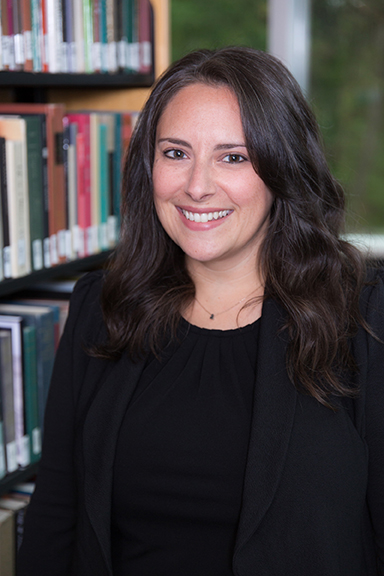 Joyce DeStasio, Outreach & Public Services Librarian, wrote a book chapter entitled "Common Reading Collaboration for First-Year Student Success" in The Small to Midsize Academic Library: Collaborations and Outreach. This is the first book in a new series, The Small to Midsize Academic Library, published by ACRL.
Joyce DeStasio, Outreach & Public Services Librarian, wrote a book chapter entitled "Common Reading Collaboration for First-Year Student Success" in The Small to Midsize Academic Library: Collaborations and Outreach. This is the first book in a new series, The Small to Midsize Academic Library, published by ACRL.
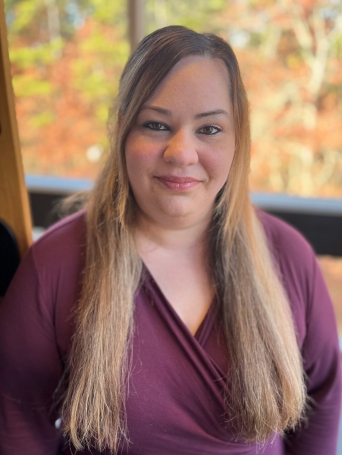 Stephanie Sussmeier, Metadata Librarian, presented at the North American Serials Interest Group (NASIG). The presentation, “Workflows, Workarounds, and Workouts: Successful Cataloging From A Distance,” discussed working 2.4 miles away from fellow cataloging colleagues and how it required changed workflows and communication, yet brought about some positive changes.
Stephanie Sussmeier, Metadata Librarian, presented at the North American Serials Interest Group (NASIG). The presentation, “Workflows, Workarounds, and Workouts: Successful Cataloging From A Distance,” discussed working 2.4 miles away from fellow cataloging colleagues and how it required changed workflows and communication, yet brought about some positive changes.
The College of New Jersey
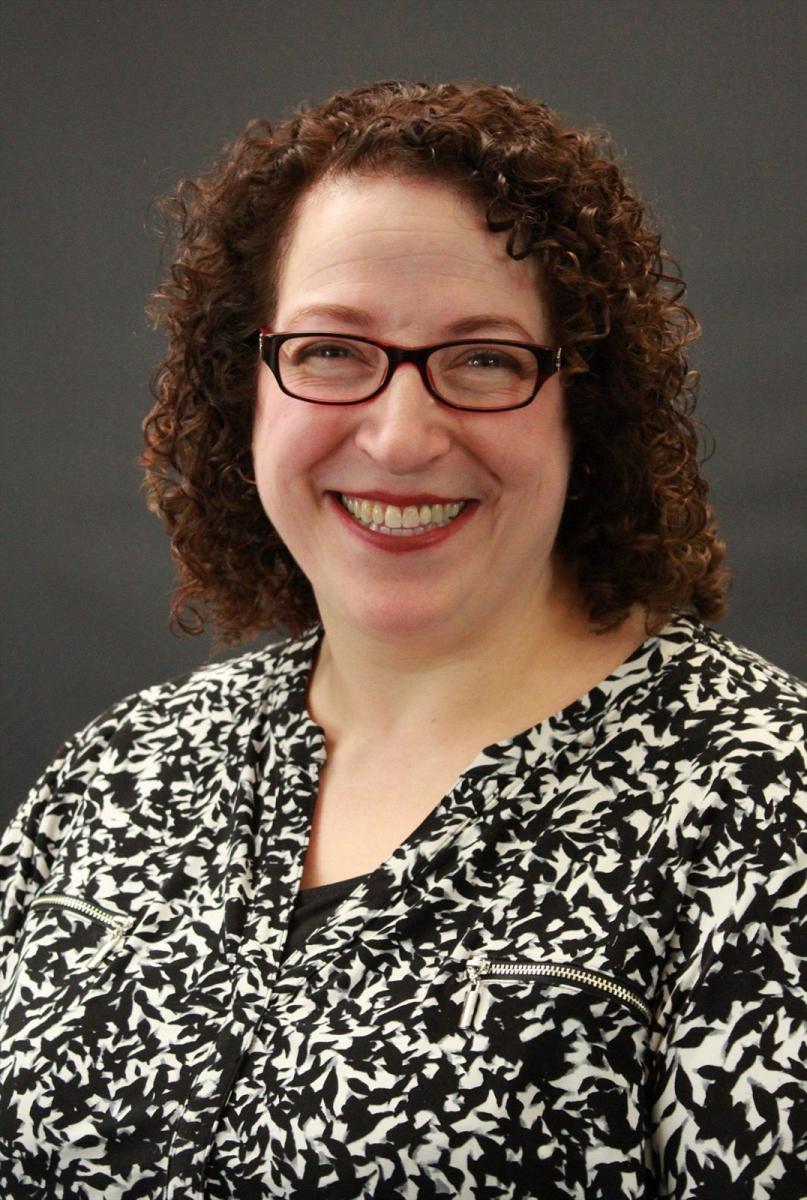 Erin Ackerman has been named Interim Director of the R. Barbara Gitenstein Library at The College of New Jersey. She served previously as Assistant Director for Public Services and Social Sciences Librarian at TCNJ.
Erin Ackerman has been named Interim Director of the R. Barbara Gitenstein Library at The College of New Jersey. She served previously as Assistant Director for Public Services and Social Sciences Librarian at TCNJ.
William Paterson University
Recent publications and presentations from Neil Grimes, Linda Salvesen, and Gary Marks:
Peer-Reviewed Journals
Grimes, N. D., & Porter, W. (2024). Closing the Digital Divide Through Digital Equity: The Role of Libraries and Librarians. Public Library Quarterly, 43(3), 307-338.
Grimes, N. D. (2024). Navigating Mental Health and Wellness in Communities: A Review of the Literature and Implications for Libraries, Librarians, and Library Workers. The Reference Librarian, 1-24.
Van Pate, E., & Grimes, N. (2023). The Need for Building Virtual Libraries Using Google Slides and Bitmojis. Knowledge Quest, 52(1), 40-47.
Book Chapters
Grimes, N., Marks Jr., G. (2024). Academic and School Library Partnerships Focused on Professional Development in Information Literacy. In We Can Teach That: Information Literacy for School Librarians (pp. 155-166). Edited by Ewa Dziedzic-Elliott. Rowman & Littlefield.
Grimes, N., & Burchell, A. (2023). Using Bitmoji® and Google Classroom® to Support Remote Literacy Instruction in High-Needs Schools. In Digital Learning in High-Needs Schools (pp. 179-198). Edited by Heejung An and David Fuentes. Routledge.
National Presentations
Grimes, N. D., Salvesen, L., 2023 Charleston Conference, "Empowering minds: libraries leading the charge in student mental health," Library Publishers and Vendors, Gaillard Center and Francis Marion Hotel, Charleston, SC, United States. (November 8, 2023).
Grimes, N. D., Pozzi, E. M., 2023 AASL National Conference, "Bookji Research Study: Examining Middle School Reading Motivation, Engagement, Peer Influence, and Emoji Use," American Association of School Librarians, Tampa Convention Center, Tampa, FL, United States. (October 21, 2023).
Marks, G. R., Grimes, N. D., 2023 AASL National Conference, "College Readiness: Academic & School Library Partnerships, A Statewide Organizational Approach," American Association of School Librarians, Tampa Convention Center, Tampa, FL, United States. (October 19, 2023).
Passage of Freedom to Read Act
The “Freedom to Read Act”, sponsored by Senators Andrew Zwicker (D) and M. Teresa Ruiz (D) as well as several other New Jersey legislators, passed both houses of the New Jersey Senate on October 28, 2024 and is currently waiting signature by Governor Murphy. You can urge the governor to act on the bill by signing this following petition.
Here are some key points of this legislation:
-
Guarantees parental rights to challenge books
-
Enables parents to choose from a wide range of professionally chosen materials
-
Promotes 1st Amendment Rights
-
Requires libraries to adopt a selection policy for curating materials
-
Requires libraries to establish a process for responding to parental challenges, including a parent and board designee on the reconsideration committee for school libraries
-
Protects freedom to choose reading materials
-
Protects the liberties and freedoms of readers, parents, and libraries
-
Protects librarians from harassment and threats for responsibly doing their job
-
Recognizes that libraries are centers of voluntary inquiry fostering student growth and development
-
Requires access to diverse and inclusive materials
-
Provides access to materials that meet readers’ interests, needs, and developmental level
-
Promotes free expression and access to ideas
-
Enables local boards to control and customize selection and removal policies that comply with the act
-
Provides guidance from model policies offered by the Commissioner of Education and the State Library
-
Limits removal requests to persons with a vested interest in the school district or library
-
Acknowledges that librarians are professionally trained to curate library collections
-
Prevents criminal or civil liability for good-faith performance of job responsibilities
-
Enables civil action against those who harass librarians for good-faith performance of job responsibilities
The key points of the legislation have been adapted from resources created by SWEEP New Jersey members and by Martha Hickson (media specialist at North Hunterdon-Voorhees High School) to inform NJ stakeholders about the bill.
The “Freedom to Read Act” has been supported by several state organizations, including NJLA, NJASL, NJPSA, NJEA, and NJSBA, among others.
Ewa Dziedzic-Elliott is the Education Librarian at The College of New Jersey. She can be reached at dziedzie@tcnj.edu.
Creating a Sensory-Friendly Study Space at Your Academic Library
By Drew Wallace
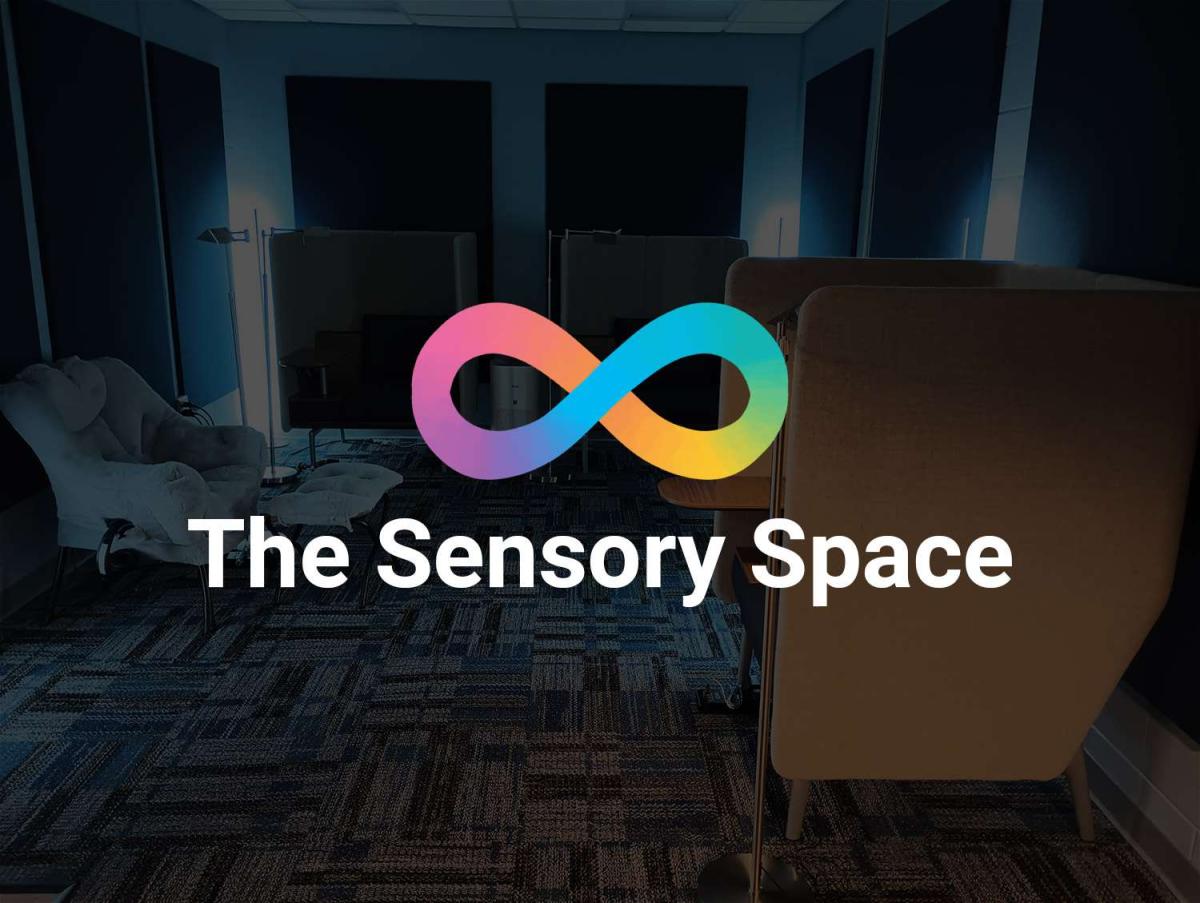
In September 2024, the Sprague Library at Montclair State University officially opened its newest study room, the Sensory Space. As the librarian who planned and implemented this project, I’d like to explain why the Sensory Space is so important and invite my peers from other New Jersey academic libraries to create sensory-friendly study areas at your own institutions. My intention here isn’t to say “Check out this awesome thing we did!” but rather “Check out this awesome thing that YOU can do.”
Here are a few reasons why you should create a sensory space at your library followed by a step-by-step plan to make it happen:
Neurodivergent students are already here: The LIS literature indicates that neurodivergent students view the academic library as their safe space on campus and, accordingly, spend more time at the library than their neurotypical peers.
Small changes make a big difference: Many library facilities are inaccessible to neurodivergent students because of sensory stressors like bright fluorescent lighting and excessive noise. Recalibrating the sensory profile of your study rooms can make your facilities more accessible to all students.
Student success: Having a sensory-friendly space on campus is shown to improve academic performance and retention for neurodivergent students.
Mental wellbeing: The de-stressing effects of a sensory space can also improve neurodivergent students’ sense of belonging and personal wellbeing.
Low cost/high return: Small, relatively inexpensive modifications to existing library facilities can have an outsized impact on improving neurodivergent experiences in the library.
DEI: Neurodiversity is a critical aspect of DEI that is often overlooked in academic communities. As an intersectional form of diversity, neurodivergence often amplifies existing inequities experienced by students from marginalized communities.
Everyone benefits: Following the tenets of Universal Design, the benefits of a sensory space are shared among all users. Increasing accessibility for neurodivergent students doesn’t come at the expense of others.
How to create a sensory space at your academic library:
1. Discuss the idea of a sensory-friendly room with your peers. If you have any self-identifying neurodivergent colleagues, consider asking them to either lead or co-lead the project with you.
2. Communicate the benefits of a sensory-friendly room to your library administration. The support of your administration is essential since you’ll be asking them for space, money, and staffing resources.
3. Establish your working budget. Financial resources are understandably limited at many academic libraries, but you can make a functional sensory space for under $1,000. That being said, a larger budget will give you more flexibility and increase the capacity of your space.
4. Identify an appropriate room within your library for conversion into a sensory space. This should be a self-contained room with working doors that can be closed to provide sound isolation from adjoining areas. A well-ventilated, carpeted room generally works best. The size of the room you select should align with your budget; that is, the bigger the budget, the larger the room you can afford to retrofit as a sensory space.
5. Determine the potential student capacity of your room. While you may be tempted to set this number as high as possible, keep in mind that seating in a sensory-friendly room will be spread out more than in a typical group study room.
6. Coordinate with your facilities department to address any maintenance issues with the room, such as painting the walls or repairing visible damage. Walls should be painted a cool, soothing color like pale grey or blue.
7. Select your furnishings:
a. Lighting: Overhead or fluorescent lighting should be avoided if at all possible. Instead, corner lamps can be angled toward the walls to create a diffused lighting effect. A dimmable work lamp can be provided for each seat, allowing students to choose the lighting level that’s just right for them.
b. Sound: Acoustic dampening wall panels are the gold standard for noise reduction in your sensory room. However, they can be quite expensive, so using a combination of noise-canceling headphones and white noise (from a white noise machine or, even better, a HEPA filter) can be a budget-friendly alternative.
c. Seating: Privacy lounge chairs make for the best seating because they provide a sense of physical isolation from all types of sensory stressors. Like the acoustic wall panels, however, they tend to be rather pricey, ranging from $3,000 to $15,000 per chair. If privacy chairs don’t align with your budget, make sure to choose the most comfortable seating options you can afford. A variety of seating works best, such as a mixture of chairs with adjustable work surfaces, bucket seats, beanbags, and even yoga mats and cushions for floor seating.
d. Extras: Don’t overlook the small details like extension cords, phone charging cables, storage containers, and fidget toys.
8. Set up the space. Experiment with different furniture and lighting configurations. Recruit a group consisting of neurodivergent and neurotypical students and staff for user testing.
9. Determine and advertise your room policies and booking procedures. Remember the student capacity you calculated earlier? You can easily designate this number of bookable seats through LibCal. Your new sensory space can then be integrated with the other bookable spaces in your library.
10. Create the appropriate signage to help with wayfinding, communicate room policies, and provide QR codes for walk-in reservations. You can also link to feedback systems, like a Qualtrics survey, for documenting user experiences.
11. Train any relevant staff, particularly openers and closers, on room setup procedures to ensure the lighting and other elements are appropriately configured each day.
12. Marketing, marketing, marketing! Advertise your new sensory space anywhere you can, from the library website to university social media accounts to the local student newspaper.

While there’s no one-size-fits-all approach to creating a sensory room, these steps should help get the ball rolling at your library. There are many ways to create a more accessible sensory experience for neurodivergent students regardless of your budget, so feel free to email me if you’d like any suggestions for your library.
Drew Wallace is the Research and Reference Librarian at the Sprague Library at Montclair State University. He can be reached at wallaced@montclair.edu.
Putting the ‘I’ in Inclusion
At Raritan Valley Community College, inclusive teaching has always been part of our work, but only recently have we brought it explicitly to the forefront with the college’s Access2Success initiative which “aims to engage the RVCC community in promoting students' short- and long-term success, working towards closing the opportunity gap that persists with disadvantaged and underrepresented students, particularly Black/African American, Latinx/Hispanic, first generation, and under-resourced.” Over the last academic year, many faculty at RVCC have participated in book discussions and events centered on the book Inclusive Teaching by Viji Sathy and Kelly A. Hogan. I wrote about the Access2Success initiative in the Fall 2019 edition of this newsletter discussing the abolishment of overdue fines, but not about Access2Success through a pedagogical lens.
In September, I attended the LibraryLinkNJ one day Inclusion Conference and heard a statement that really resonated with me regarding DEI work in that we often overlook the ‘I’ of inclusion. So much fantastic and meaningful effort is spent doing diversity and equity work that sometimes inclusion ends up being an afterthought, a box to be checked, or something that perhaps should occur organically if diversity and equity needs are met.
As a community college faculty member, teaching is probably the most important part of my work. Ensuring that all my students can succeed in an environment that supports them from where they are is mission critical. Some pedagogical inclusion strategies are fairly obvious: include your pronouns, ensure you have desks that students in wheelchairs can use, make sure your slides use big enough fonts for the back of the room to see. If you have visually impaired students, are you able to provide them with complimentary instructional material that a screen reader can process? Do your videos have captions? Are you approaching your teaching with the understanding that people with lots of abilities and learning styles will be in your classroom and engaging with your materials? And of course, so much more!
For me, one of the things that was missing from the narrative was how we can make the classroom inclusive for the instructor as well as our students. Much of the literature assumes the instructor is free of the need for accommodations and focuses primarily on the learner. In fact, there is research demonstrating that faculty members disclosing disabilities or accommodation needs may be seen as unable to do the job as well as a non-disabled, or neurotypical instructor (Freidensen et al., 2021; Castro et al., 2004; Dolan 2023). The literature about faculty with disabilities is sparse yet incredibly insightful. Dolan (2023) explains that ableism could ultimately put institutional health in jeopardy and consequently, many professors regrettably live with the fear of being perceived as incompetent (693) and that “coming out” with one’s disability can be dangerous (696)!
I am going to focus on hearing impairment/hearing loss/hard of hearing (HoH) because that is my disability, but I recognize there are so many other elements of inclusion for faculty who may have other physical, invisible, learning and/or cognitive disabilities, be neurodivergent, mental health, chronic pain, etc., or need other accommodations, and so on. I also recognize my privilege to be able to “come out” as HoH because of my position as a tenured, full professor at my institution. I (and the research studies I’ve read) acknowledge that contingent employees and those in positions of precarity may not be so lucky as to disclose their disabilities.
I grew up with a mother who had a profound hearing loss since her birth, but I didn’t start losing my hearing until I was in my mid-30s. I am now diagnosed with moderate level, low-frequency hearing loss and require bilateral hearing aids. Although the library instruction classroom at RVCC has made strides in improving acoustic challenges (which I’ve also written about for this newsletter in the Fall 2022 issue). I continue to struggle to hear my students and other instructors while teaching. In a classroom that supports active learning, everyone being able to hear each other is essential!
During the spring 2024 semester, I learned about a product called a Catchbox via the blog ‘The Mind Hears,’ a blog written by Deaf of Hard of Hearing (HoH) academics. Paige Glotzer, an HoH history professor uses a Catchbox for her lectures. Basically, it’s a soft, tossable cube with an embedded Bluetooth enabled microphone that connects to the classroom’s amplification system. Do you remember elementary school where your teacher would toss a Koosh ball and whoever had it was the speaker?! This is the same idea but with a built-in microphone!
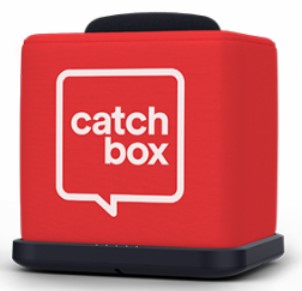

(Left to Right) The Catchbox itself on the wireless charging base. The receiver hub for the Catchbox that plugs into the classroom amplification system.
RVCC implemented an innovation grant program available to the entire college community to challenge us to think outside of the box (pun intended here) for innovative ideas, projects, and initiatives. No request would be considered too big or too small. I knew mine was relatively small, but I knew its effect on my teaching would be huge. I wrote a grant to be considered for funding from the innovation grant program to purchase a Catchbox system for use in my classroom. In July, I received notice that my grant was approved, and I received the system early this semester to begin use in my fall teaching.
The system consists of the Catchbox cube, a charging base, the receiver, and all necessary cables. There are additional microphones and accessories, but I only wanted the base model at this point. Setting the system up was as easy as plugging things into the wall, into each other, and into the classroom’s stereo system. You pick up the cube, speak into it and it works!
I’ve created additional accommodations for myself in my classroom by live captioning all my presentations using the built-in caption function in PowerPoint online. With the combination of the captions and enhanced amplification, I can continue to move around the classroom as I always did, but I can count on being able to hear (and read) most of what my students are saying. I had the realization that with these accommodating teaching strategies, I had included myself in my own classroom when a student was using the Catchbox and I was writing what he was saying on the board with my back turned to him – I could hear his words! It was a moment of personal joy that I was able to do something so many of my teaching colleagues take for granted.
References
Castro, F., Cerilli, C., Hu, L., Iezzoni, L. I., Varadaraj, V., & Swenor, B. K. (2024). Experiences of researchers with disabilities at academic institutions in the United States. PLoS ONE, 19(8), 1–15. https://doi.org/10.1371/journal.pone.0299612
Dolan, V. L. B. (2023). “…But if You Tell Anyone, I’ll Deny We Ever Met:” The Experiences of Academics with Invisible Disabilities in the Neoliberal University. International Journal of Qualitative Studies in Education (QSE), 36(4), 689–706.
Friedensen, R. E., Horii, C. V., Kimball, E., Lisi, B., Miller, R. A., Siddiqui, S., Thoma, H., Weaver, J. E., & Woodman, A. (2021). A Systematic Review of Research on Faculty with Disabilities. Journal of the Professoriate, 12(2), 1–25.
Glotzer, Paige. 2020. Profile: Dr. Paige Glotzer. The Mind Hears. https://themindhears.org/2020/07/14/profile-paige-glotzer/
Hogan, Kelly A., and Viji Sathy. 2022. Inclusive Teaching: Strategies for Promoting Equity in the College Classroom / Kelly A. Hogan and Viji Sathy. West Virginia University Press. https://research.ebsco.com/linkprocessor/plink?id=386903be-9d59-3031-83c2-09625c9cfdcd
Raritan Valley Community College. (n.d.). Access2Success. https://commons.raritanval.edu/acadint/a2s
Alyssa Valenti is the Electronic Resources and Web Services Librarian at Raritan Valley Community College. She can be reached at Alyssa.Valenti@raritanval.edu.
Updating the NJ Information Literacy Progression Standards
By Joe Louderback, DeVry University & Ruth Christina Ware, Yoseloff Business Research Center, NYPL
In 2009, NJLA-CUS/ACRL-NJ published the Information Literacy Progression Standards for Use in New Jersey Colleges and Universities. This was the culmination of the two-year effort of a committee of New Jersey academic librarians to map ACRL’s 2000 IL Competency Standards for Higher Education to the first two years of college for New Jersey students.*
The 2009 Progression Standards effectively analyzed the ACRL Competency Standards with the goal of establishing benchmarks for competencies students should have at the end of their freshman and sophomore years. In the spring of 2023, members of NJAL’s Reference & User Education Committee discussed the need for an update to the Competency Standards. The rationale for the update was clear given developments in the information landscape, e.g., the explosion of social media and the widespread adoption of smart devices. The adoption by ACRL of the Framework for Information Literacy for Higher Education in 2016, which reflected and addressed these developments, was also a major impetus for the update. As the initiative was being discussed, our librarian colleagues in the K-12 environment were busily updating their own information literacy standards. Early discussions led to the recognition that this initiative would be of interest to more than just the Reference & User Education Committee. With the approval and recommendation of then-president of NJLA-CUS/ACRL-NJ, Nicole Potdevin, currently Associate University Librarian for User Services at Fairleigh Dickinson University, a new task force was created to address these developments and bring the Competency Standards up to date.
The task force has been meeting on nearly a monthly basis since June 2023. To date, the group has assembled the most commonly used rubrics for information literacy from K-12 to higher education. A preliminary literature review has been conducted. A major part of the recent activity has been analysis of the Framework for Information Literacy for Higher Education. Discussions of each Frame and the attendant Knowledge Practices and Dispositions often cover multiple meetings. These discussions have generated working documents that summarize the discussion and include commentary and avenues for further questions. The immediate goal of the Framework analysis is identifying learning objectives that can be put into practice in information literacy instruction in the higher education classroom. A more long-term goal will be creation of a document that will help translate the Framework into actionable instruction objectives and show the connections between IL instruction in the K-12 and higher education environments.
The membership of the task force represents all types of academic libraries in NJ, including community colleges and public and private four-year institutions. The committee believes there’s always a place for another perspective, and we welcome folks to join us in this effort. If you’re interested in participating in this ongoing project (or know someone who might be) or would just like to learn more, contact the co-chairs of the task force, Joe Louderback (jlouderback@devry.edu) or Leslie Murtha (LMurtha@atlanticcape.edu), or visit our poster at the New Jersey Academic Libraries Conference on January 10, 2025.
*For more information about the 2009 Information Literacy Progression Standards for Use in New Jersey Colleges and Universities and the committee members who made it happen, visit https://cus.njla.org/sites/cus.njla.org/files/ILprogressionstandards2010.pdf
Joe Louderback is the Reference and Instruction Librarian at DeVry University. Ruth Christina Ware is a Senior Manager at Yoseloff Business Research Center, New York Public Library.
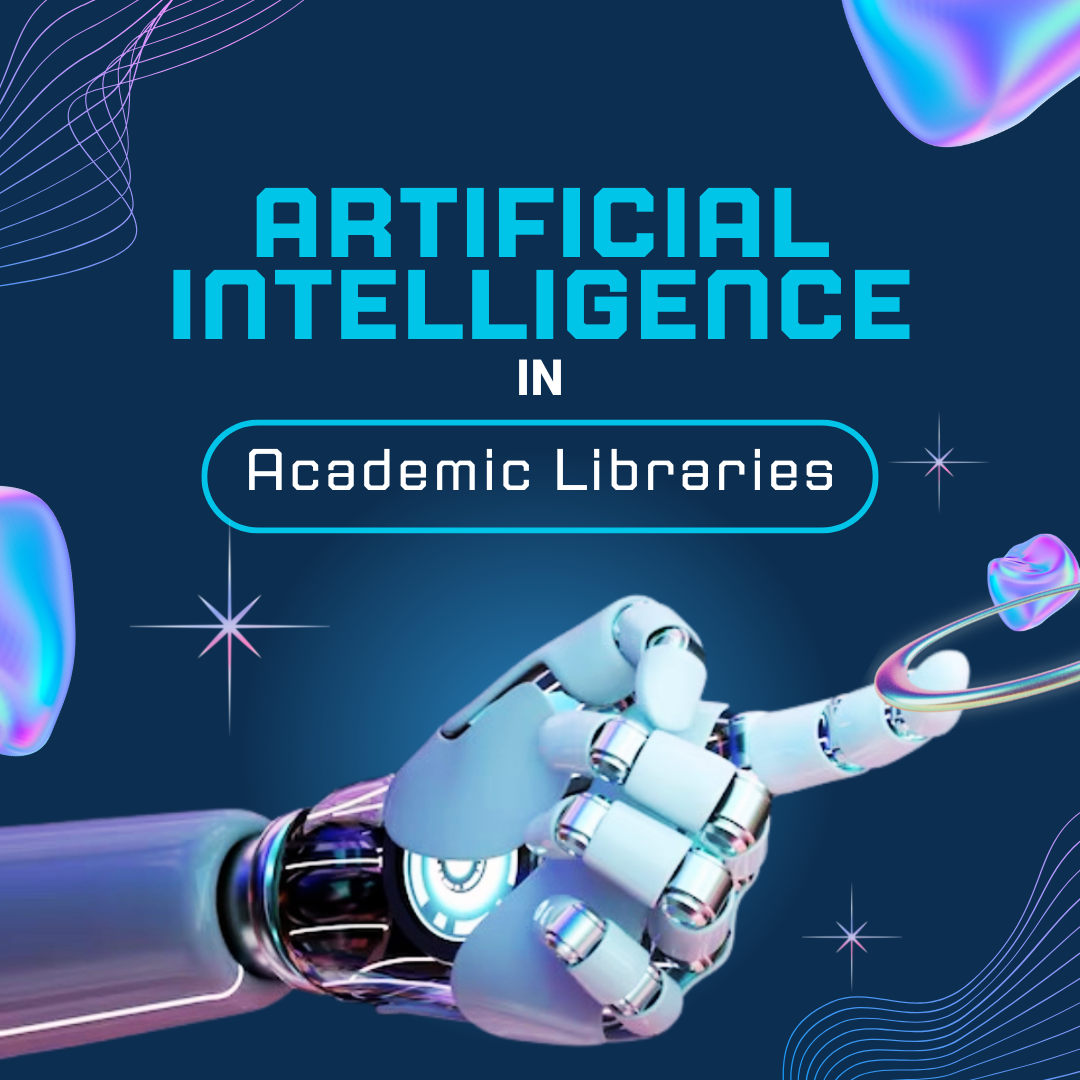
The NJAL Artificial Intelligence Special Interest Group
By Theresa Agostinelli
A key finding from the NJAL Member Assessment Task Force’s recent research was that academic librarians in NJ want to get together with colleagues to network and share ideas, but do not always have the time or resources to do so. In an effort to fulfill this real need, NJAL has formed three special interest groups (SIGs), including one with a focus on artificial intelligence (AI).
The NJAL AI SIG held its first meeting online on Tuesday, October 29th with thirty people in attendance. After introductions and a brief welcome from NJAL President, Maria Deptula, Kevin Handeli, Web Services and Systems Specialist, Montclair University, gave a live demo of LivechatAI https://livechatai.com/ . Kevin had fed this tool content from multiple pages from the library website which enabled LiveChatAI to answer library-related questions in real time. One notable feature was that in addition to answering questions, it also provided a link to the page where it had found that information. At this point, this tool does not seem to have the ability to scrape data from LibGuides. A thoughtful discussion on future uses for this tool followed.
The AI SIG will meet approximately once a month and meetings will last for one hour. Meeting dates and times will vary each month depending on meeting survey responses. Since the format of a special interest group is informal, anyone is free to attend meetings without any commitment to attend every month. Meeting content will be shaped by group interests, but will contain a mix of short demos and/or presentations, article discussions, and idea sharing, with a focus on the use of AI in academic libraries.
Meeting links will be shared on the VALE listserv. You may also add your name and email address to this form to be included in future mailings. If you would like to present and/or demonstrate content at a future meeting, or have any questions or comments, please contact me at agostinellit@gmail.com. You do not need to be an AI expert to get involved!
Theresa Agostinelli is an Adjunct Librarian at Brookdale Community College.
Creating Clarity: Developing Stockton University’s Generative AI Guide
By Cheyenne Riehl
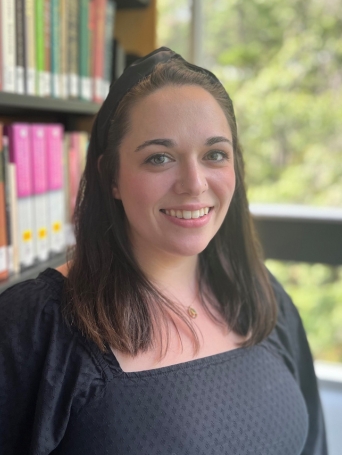 Since the release of OpenAI’s ChatGPT in 2022, higher education has found itself at a crossroads, striving to address the rapid advancement and integration of artificial intelligence in academia. Academic libraries, as core support structures within universities, have been thrust into a unique position—balancing the need to support their communities’ growing curiosity and concerns about AI while addressing practical, ethical, and pedagogical questions raised by these technologies.
Since the release of OpenAI’s ChatGPT in 2022, higher education has found itself at a crossroads, striving to address the rapid advancement and integration of artificial intelligence in academia. Academic libraries, as core support structures within universities, have been thrust into a unique position—balancing the need to support their communities’ growing curiosity and concerns about AI while addressing practical, ethical, and pedagogical questions raised by these technologies.
The need for AI literacy resources has never been more urgent for academic librarians and library staff. At Stockton University, the pressure to support faculty and students in navigating this rapidly evolving digital landscape had driven me to create a resource that would be equally valuable to the AI-curious and the AI-hesitant. My first step was to explore the efforts of fellow academic libraries across the country, delving into LibGuides, blogs, tutorials, and any other available resources to find existing materials on generative AI support. Yet, I quickly discovered a significant gap. I could not find a comprehensive, all-in-one guide that could assist in demystifying and defining AI while tackling the essentials of digital and AI literacy in a balanced and accessible way. This realization highlighted the need for a resource that introduces AI concepts and addresses the ethical and practical challenges of using AI in academia. A well-rounded guide would build foundational AI literacy, providing my community with the tools to engage responsibly with these technologies. With this resource, I was hoping to host the conversation within the walls and expertise of the library and empower faculty and students to navigate AI confidently and responsibly.
The Generative AI Guide encompasses a few key components:
- Introduction to Generative AI: These sections provide foundational knowledge about generative AI, including key definitions, an introduction to prompt engineering, and relevant tools and resources.
- Ethical Considerations: Sections addressing the ethical implications of AI use such as bias, privacy concerns, and the responsible deployment of AI technologies in research and education.
- Practical Applications: Users can find examples demonstrating how AI tools can be effectively integrated into academic work and throughout the academic research cycle.
- Resource Compilation: The rest of the guide aggregates a variety of materials, including tutorials, articles, and generative AI tools, to support further exploration and understanding of AI concepts.
As AI continues to evolve, this guide will serve not only as an educational tool but also as a platform for ongoing dialogue within our university’s community—rooted in the values of responsible engagement, innovation, and ethical inquiry.
View the Generative AI LibGuide here: https://library.stockton.edu/genAI/home
Cheyenne Riehl is the Student Success Librarian at Stockton University. She can be reached at cheyenne.riehl@stockton.edu.
AI in Action: An Informal Approach to AI & Information Literacy
By Lori Lenox, MLIS

How can we empower our students to utilize artificial intelligence (AI) tools without compromising their ability to think critically and independently? Can we ensure our students are better prepared for the complexities of research while still maintaining the integrity of their work? The simple answer is yes. The trick is – how to do it.
At the Camden County College Library, we have decided that the best approach to teach students about AI in academics is an informal approach. The goal is not to focus on AI as a standalone topic, but to demonstrate its appropriate and effective use as an academic support tool. We utilize ChatGPT in examples and teach them how to use the tool appropriately. We ensure that our sessions avoid focusing solely on AI tools but rather include them as part of a broader approach to research. And we remind our students that ChatGPT is a support tool – not a shortcut to avoid doing the real work.
As part of my work teaching information literacy, I have integrated ChatGPT into my one-shot instruction to help students better navigate the complexities of research. By incorporating ChatGPT into our library sessions, I aim to help students harness AI to refine their research processes. My areas of focus are topic selection, search term generation and identifying key points.
With the informal incorporation of the ChatGPT into our standard information literacy classes, students better understand its’ value using a practical, hands-on approach. The key distinction here is that we’re not focusing on AI as a technical subject, but rather as a tool that supports students. The goal is to show students that AI can assist in finding topic ideas and brainstorming keywords for search queries and outlining main points. Teaching AI in this way not only makes the search process more efficient but also impresses upon the students the importance of using varied search terms. Using this approach aligns with best practices in information literacy, where students learn how to use different keywords to locate the most relevant information for their topics.
I find that students are often overwhelmed when starting a research project, unsure of where to begin. AI can be a valuable first step in breaking that initial barrier. Instead of diving straight into databases or academic journals, I encourage students to first use ChatGPT, since a key benefit of ChatGPT is its ability to help students generate topic ideas, especially when they’re at the beginning stages of their research. This gives them a starting point and helps them develop a clear sense of direction. A real-life example is one of an art student struggling to find a topic of interest for her biology class. After a discussion, we decided to check for topics on biology as related to horror movies. Using ChatGPT, we got an extensive list of ideas and she was able to find multiple options to submit to her professor for topic approval.
The example illustrates how this process helps students refine their research and develop their research questions. By presenting multiple angles on a topic, ChatGPT helps students think critically about their projects. It’s important to note that this is a tool for inspiration, not a final answer. It should spark ideas to be evaluated, narrowed down and refined throughout their research. This approach has gone over well with faculty because it does not replace critical thinking or academic integrity.
Once students have their research topic and main points, the next step is to find relevant sources. At this stage, finding the right search terms is crucial. This is where ChatGPT can be particularly useful. By inputting a defined topic into ChatGPT, students can receive a list of relevant search terms and concepts that they can use for their research.
For example, sticking with the topic of biology and horror films, Genetic Engineering Gone Wrong: Frankenstein, Cloning, and Bioethics in Horror is a topic generated by ChatGPT that leads to search terms such as genetic engineering, cloning, bioethics, horror movies or specific movie titles. This helps students find articles that might not have been immediately obvious allowing them to gather relevant sources.
It is important to emphasize that ChatGPT should be seen as a tool, not a substitute for the student's own effort. The suggestions it provides are a foundation for analysis while critical thinking and independent decision-making remain at the heart of the research process. As with any tool, the key to using ChatGPT effectively in academic settings lies in maintaining academic integrity and cannot replace using your own thoughts and ideas.
Students should be encouraged to use ChatGPT responsibly by treating it as an assistant rather than a shortcut or easy button. I remind them that it’s essential to cross-check the information provided by AI with credible sources and to always cite their references properly. Understanding the difference between using AI as a tool and relying on it to do the work for them is an increasingly crucial aspect of information literacy.
By incorporating ChatGPT into my library’s information literacy classes, I aim to empower students to use AI as a valuable research tool that enhances their academic skills without compromising their ability to think critically and independently. By focusing on its appropriate use, I am able to guide them to harness the power of AI responsibly. This approach ensures that students are better prepared for the complexities of research while still maintaining the integrity of their work.
Lori Lenox, MLIS, is the Information Literacy Librarian at Camden County College. She can be reached at llenox@camdencc.edu.
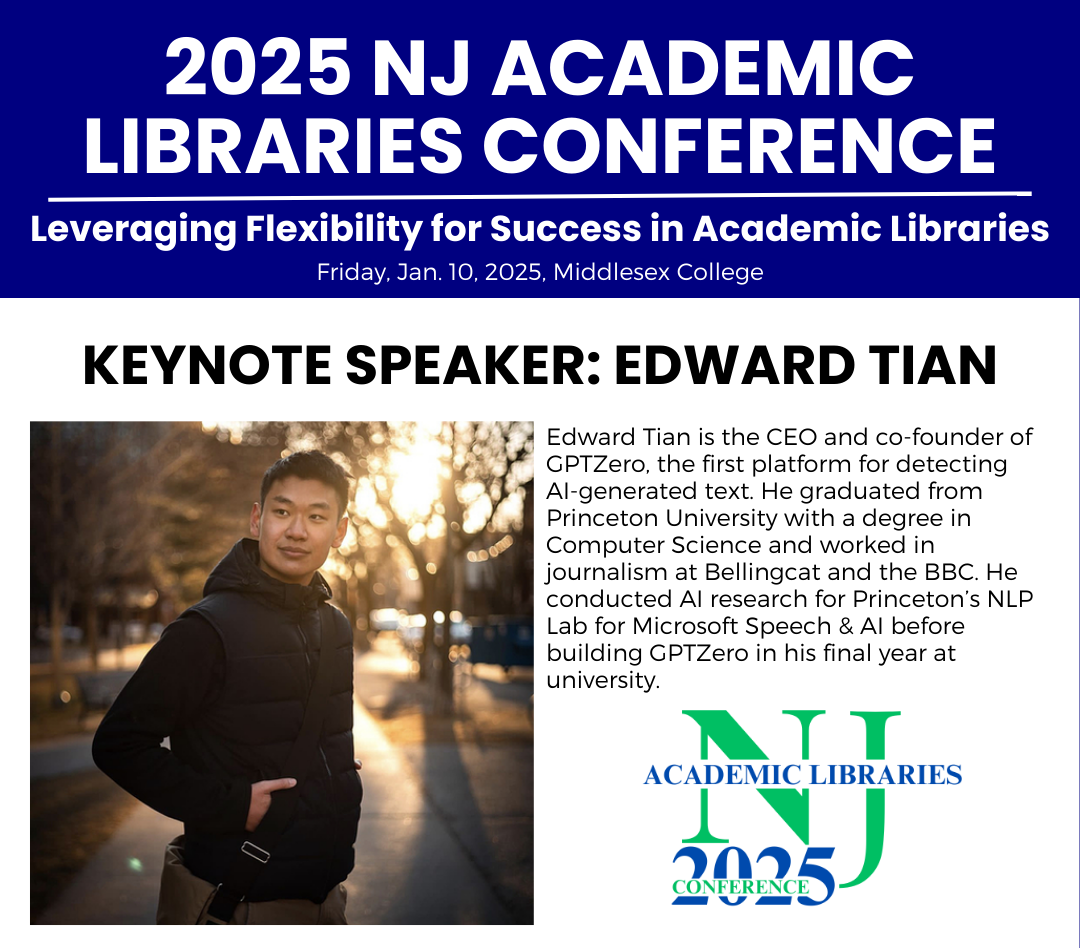
Taylor Memorial Library Celebrates 70th with Bewitching Birthday Bash
By Rita Keene and Susan Van Alstyne
The Taylor Memorial Library (TML) at Centenary University celebrated its 70th anniversary on October 23, 2024, marking a significant milestone in the history of the 157-year-old institution. Although TML may seem young compared to the University, it stands at the heart of a campus rich in history.
To commemorate this 70th anniversary, we explored our archives to share the library's extensive history, beginning with its dedication ceremony on October 23, 1954. Our archives contain valuable documentation regarding the construction of the library, including plans and correspondence between Ruth Scarborough, who was the library director at the time, and Jan Hird Pokorny, the architect behind our library, highlighted by a LibGuide developed by Rita Keene. Mr. Pokorny received a major commission in 1949 to design both the student union and the library for Centenary College (as it was known then), which helped establish his firm's reputation and led to a series of successful commissions for various institutional and private buildings and interiors. We were honored to have one of the architects, Kurt Hirschberg (pictured below), attend the event. He had previously worked with the firm's founding architect, making his presence a delightful surprise!
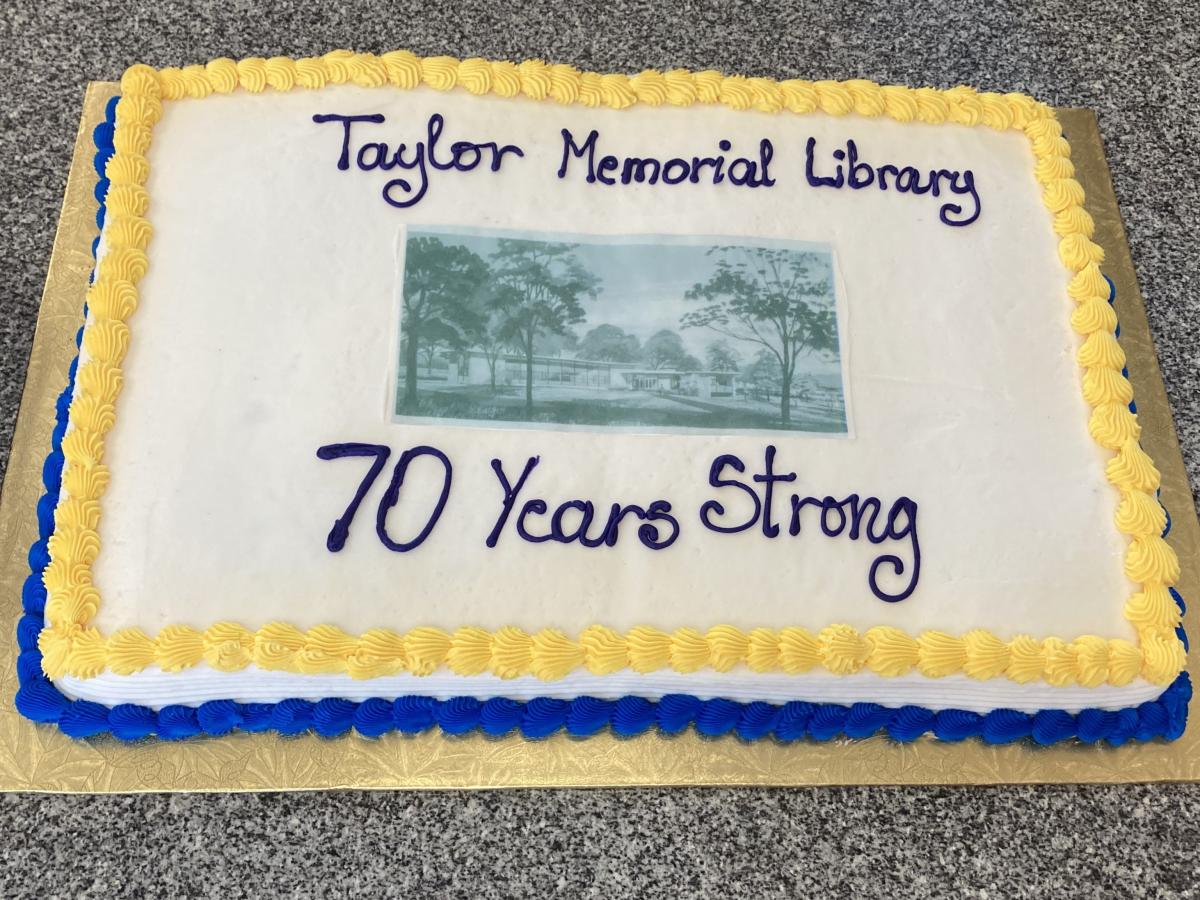
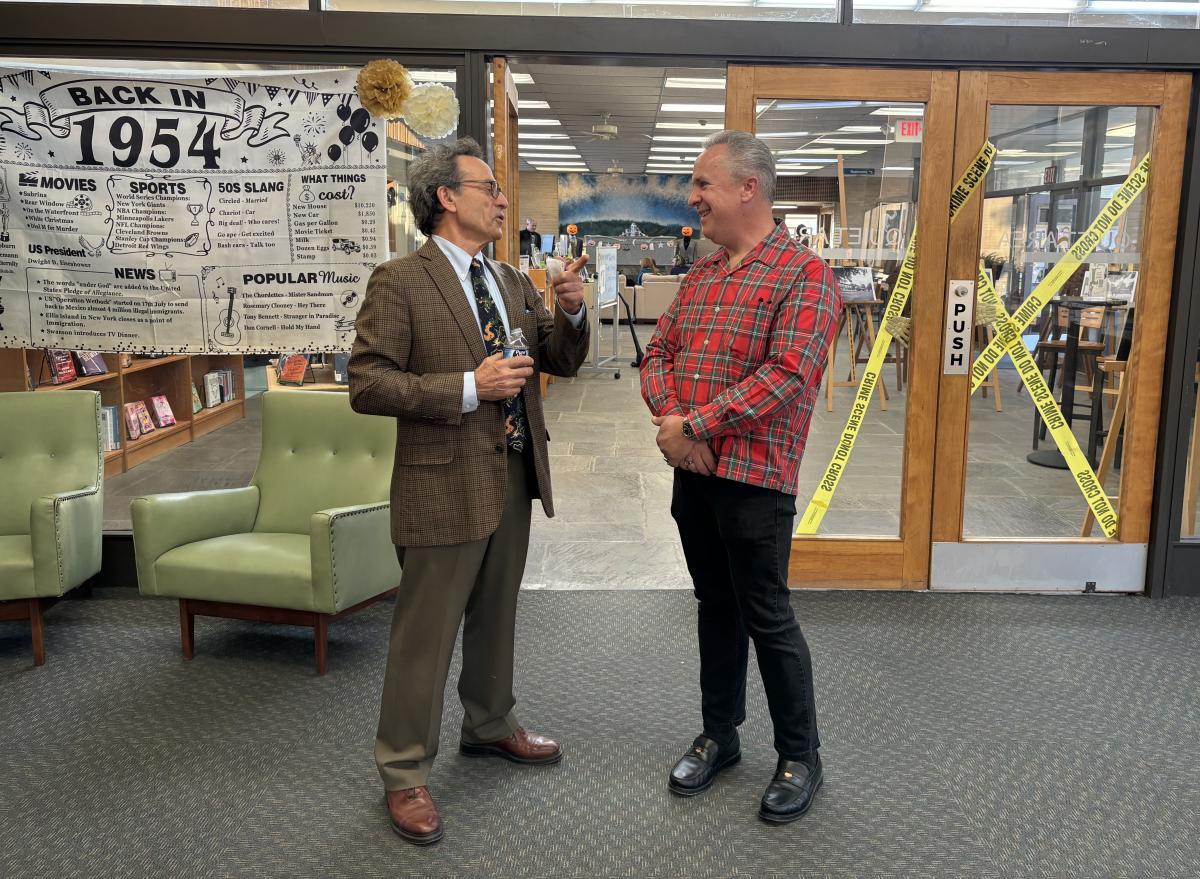
Our library, though in need of some attention, remains the heart of the campus and is a prime example of mid-century modern architecture. Many custom desks and furnishings, selected by Mr. Pokorny and Ms. Scarborough, are still in use today. While the original building design is intact, many of these features continue to influence modern libraries and contemporary architecture. The library is characterized by open spaces filled with natural light, making it accommodating for a diverse range of users. It serves as the intellectual hub of the campus, with various departments and individuals hosting events in our “Quiet Area,” which offers a spacious and classically clean designed environment.
For our birthday celebration planning, we considered various ideas, including launching our "Stay Curious" fundraising campaign, which aligns with our mission to foster curiosity and creativity. Although our staff is small, we aimed to focus on the students, the community, and the library's history for this event. We held several brainstorming sessions with our team: Rita Keene, Library User Experience Manager; Victoria Ramsay, Archivist; Amy Hayes, Electronic Services Librarian; and Janice Mundi, Resource Sharing Specialist. Since the event was around Halloween, we decided to incorporate a Halloween theme, encouraged by our Campus External Events Manager, Darlene White. After generating name ideas with some help from ChatGPT, we settled on "Bewitching Birthday Bash."
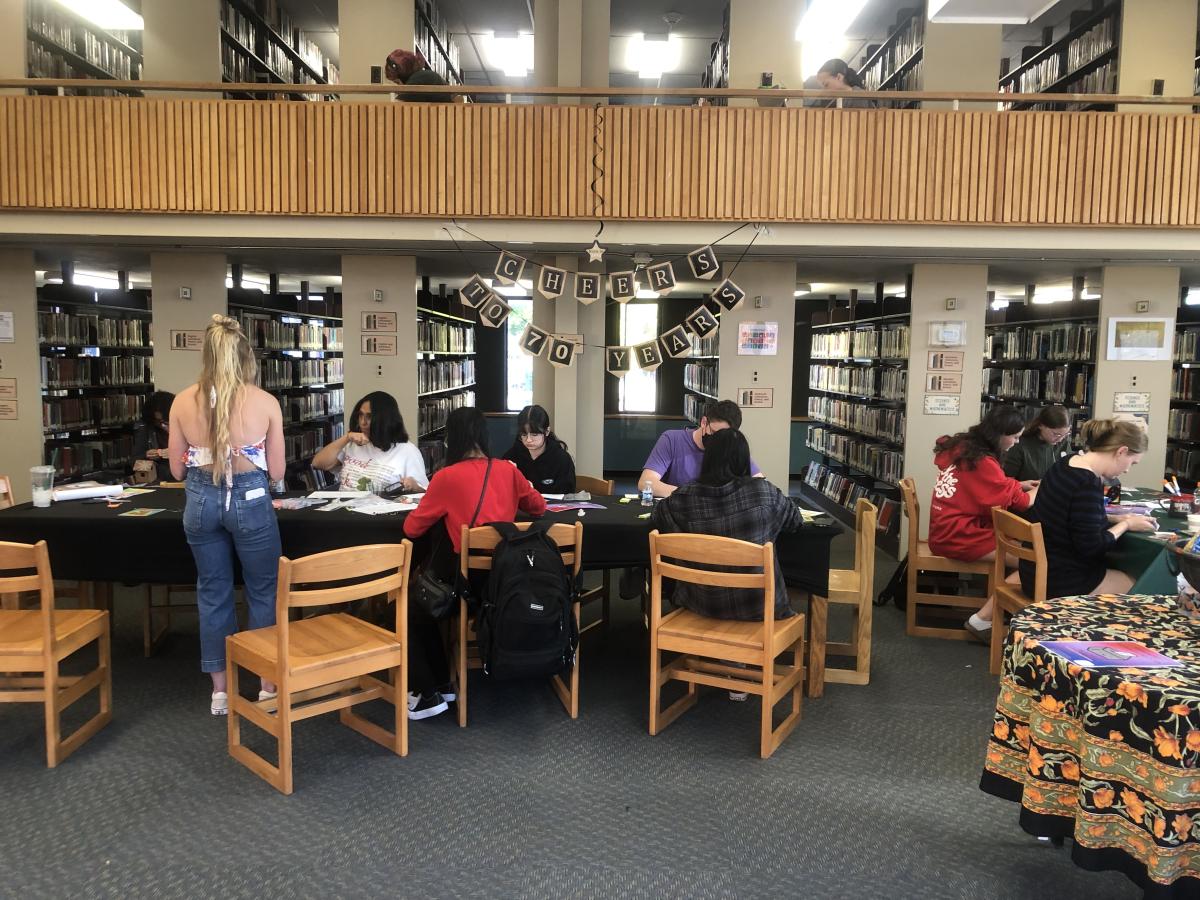
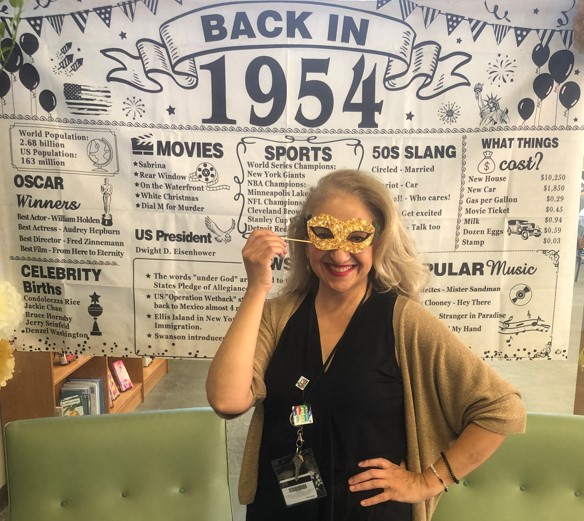
The event was focused on building community. During the day, we hosted Halloween-themed crafts, attracting a steady turnout of at least 20 to 30 participants per hour! Our schedule included crafts from 12:00 PM to 5:00 PM, with our talented work-study students managing the craft stations, followed by cake. The highlight of the day was a lecture at 6:30 PM by the New Jersey Paranormal team, who discussed haunted objects. We would like to give a shout out to the New Jersey Paranormal group; if you haven't invited them to your library yet, we highly recommend doing so. Their lecture on haunted objects was captivating and featured a death mask, a voodoo doll, and a Victorian hair wreath from our very own archive.
We drew inspiration from the NJLA Conference Commemorative Zine activity led by Laura M. Poll and decided to create our own commemorative Zine. Participation exceeded our expectations, with Rita Keene organizing the entire Zine effort. We are currently in the process of printing the Zine! If you would like a PDF of our commemorative material, please feel free to reach out to us.
Overall, we were pleasantly surprised by the high level of student involvement in this event. It truly highlighted the essential role that the library, along with its rich history, plays in the lives of students on campus. As part of our event planning, we included activities that extended beyond the day of the event. We created social media posts, a form for participants to share their favorite TML memories, a LibGuide to showcase the library then and now, and journalism professor Janet Zatta wrote an excellent feature about our anniversary in the school newspaper, The Cyclone Chronicle.
We have included links to both the LibGuide and the memory-sharing form, and we would love to hear any TML memories from our readers as well!
This project was a tremendous success, and our library aims to raise $70,000 over the next year. We decided against having any fundraising at the event, but we did announce and share our fundraising goals. In summary, when planning an event like this, it is essential to involve everyone who wants to participate. It is also crucial to recognize limitations and plan accordingly; taking on too much can hinder success. We struck the right balance with the activities and engagement, resulting in a memorable event.
Links:
Zine Zone at the New Jersey Library Association conference
Share Your Favorite Memory of Taylor Memorial Library
The Cyclone Chronicle - Taylor Memorial Library Turns 70
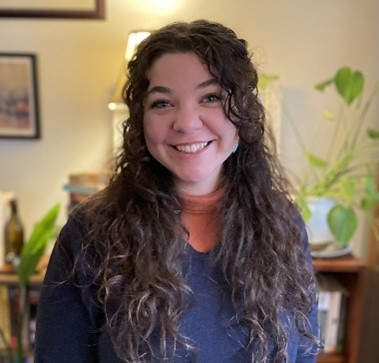
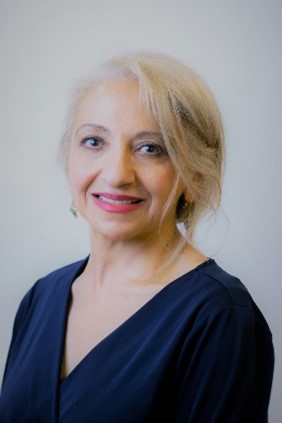
Rita Keene (left) is the Library User Experience (UX) Manager at Centenary University, and can be reached at rita.keene@centenaryuniversity.edu.
Susan Van Alstyne (right) is the Director of the Taylor Memorial Library at Centenary University, and can be reached at susan.vanalstyne@centenaryuniversity.edu.
Report from SCARLA

SCARLA (the Student College, Academic, and Research Libraries Association at Rutgers University) began its 2024-2025 event series with a Banned Books Week event, bringing students and faculty from the Rutgers School of Communication and Information together with Rutgers librarians for a wide-ranging discussion of censorship and book challenge issues.
Attendees shared resources for tracking book challenges, including both those published by the ALA and by the Book Censorship Database compiled by Dr. Tasslyn Magnusson and sponsored by EveryLibrary. There were reports on the Book Sanctuary movement, the work of Hoboken Public Library Director Jennie Pu and the New Jersey Freedom to Read Act. Participants also read from favorite banned and challenged books, ranging from James Baldwin’s Go Tell It On the Mountain and Toni Morrison’s The Bluest Eye to Lois Lowry’s Number the Stars and Ben Clanton’s Peanut Butter and Jelly (A Narwhal and Jelly Book #3). Past ALA president and Rutgers faculty member Nancy Kranich also presented on book bans and what librarians and the public can do to counter them.
SCARLA has seen considerable turnover with 4/5 of the executive board graduating last spring, and current president David Moles graduating this winter, but new members are working with David and with faculty advisor Dr. Marie Radford on maintaining SCARLA’s long tradition of informative and impactful programming this academic year. Following the successful Banned Books Week event, a CritLib Collective event is planned to take place before the holidays, with critical librarianship discussion focused on AI in the library.
SCARLA is the graduate student organization at Rutgers University dedicated to academic and research librarianship; it is affiliated with the NJLA College and University Section and the New Jersey Chapter of ACRL. SCARLA’s current president is David Moles; SCARLA’s faculty advisor is Dr. Marie Radford. For more information, including details about upcoming events, visit https://scarla.rutgers.edu.
SCARLA President David Moles can be reached at drm234@scarletmail.rutgers.edu.
Staff Representation and Partnerships in the Academic Library
Written by John Gibson (Chair-Elect of Staff Advisory Committee Executive Council, Rutgers University Libraries)
Edited by Rose Barbalace (Chair of Staff Advisory Committee Executive Council, Rutgers University Libraries)
The library is understood as a core component of every academic institution. Faculty and staff work hand in hand with creating synergies that amplify the research and work of all who enter its doors or reach them virtually worldwide. Historically, at Rutgers University (RU), the library faculty was established as an independent advisory body representing library faculty across the Rutgers University Libraries (RUL) system. This is expressed via the Faculty Planning Committee (FPC), which offers an effective communication venue to participate in library-shared governance. In her early tenure as Vice President of University Libraries/University Librarian (VPUL/UL), Dr. Consuella Askew of the Rutgers University Libraries (RUL) noticed no such representation for staff.
After identifying a lack of staff representation, the next step was to engage staff in listening sessions to ask them if representation in leadership would be desirable. Staff voted overwhelmingly in favor of such representation. With that data in hand, Dr. Askew charged a newly created group, the Staff Advisory Committee (SAC) Task Force, to further identify areas in academia that align with staff representation in their leadership structures and create bylaws for staff at RUL to vote on and ratify to apply them at RUL.
Upon assuming responsibility, the task force dedicated time to examining peer institutions and libraries for staff representation at various locations. At its initial gathering, the task force discovered that an exact fit for RUL staff was unavailable in academic libraries.
Though there was no distinct group the task force could identify to emulate exactly, it drafted unique bylaws for the libraries that amplified the charge presented to the group by the VPUL/UL and adhered to RU's existing frameworks using examples it could find, such as the RUL faculty bylaws and the RU Newark staff bylaws internally, and others more broadly around the country at peer institutes and libraries to develop a potential framework for RUL Staff.
After considerable work in drafting the bylaws, ensuring meticulous wording, and reviewing them at the campus and university levels, the draft moved forward for staff review. RUL staff ratified it by majority vote as an acceptable framework and allowed for the formation of an executive body identified as the SAC Executive Council (EC).
Elections ensued with broad representations of staff across the multiple libraries at Rutgers, with most staff participating in the election voting process. The Executive Committee and an initial three standing committees were established to support the work of the Executive Council as outlined by the ratified bylaws. These standing committees would be made up of appointed staff members who would participate in the work of the Staff Advisory Committee. Also included in the Executive Council was an elected representative from each available library region, a secretary, a chair and vice chair, an appointed Ex Officio HR representative, and the library's VPUL/UL that would update the EC at each EC meeting. All the work of each committee is thoroughly outlined in the ratified bylaws.
As this is the first year of our Staff Advisory Committee, the EC has been working to establish the groundwork in all its committees, from membership management and communication and website updates to advising leadership of staff interests. This involves meetings with staff and leadership, including town halls and open sessions. Moving into a representation of a large staff body includes providing minutes of all meetings available to library faculty and staff, meeting with the FPC, and having an EC representative on the FPC and the FPC sending a representative to the EC. The chair and chair elect of the EC also meet monthly with the VPUL/UL to solidify meeting agendas and participate in the library’s top-level leadership meeting, known as the Library Leadership Team (LLT), alongside our sister committee in faculty, the FPC.
The work of the SAC EC has been instrumental in advancing initiatives focused on staff development and fostering a more inclusive and supportive workplace. The SAC EC has actively participated in recent Libraries taskforces covering areas such as workforce planning and AI. The SAC EC collaborates on crafting job descriptions, develops staff resource web pages, and creates surveys to inform staff enrichment activities and development opportunities. This committee is also dedicated to amplifying staff voices, enhancing staff-faculty partnerships, and advising library leadership on staff needs.
John Gibson is the Instructional Technology Specialist at the Robeson Library, and Rose Barbalace is the Library Supervisor II, Access Services at Alexander Library, both of Rutgers University Libraries. They can be reached at john.gibson@rutgers.edu and rose.barbalace@rutgers.edu, respectively.
Editors
The CUS/ACRL-NJ Newsletter is edited by Joan Dalrymple, Reference and Instruction Librarian at Bergen Community College and Katie Maricic Cohen, Interlibrary Loan, Reference and Instruction Librarian at Ramapo College of New Jersey. NJLA Intern MaryAlice Rocks and Natalie Lau, Scholarly Communications Librarian at Seton Hall University, recently joined the Newsletter Committee and assisted with editing and reviewing articles for this issue.
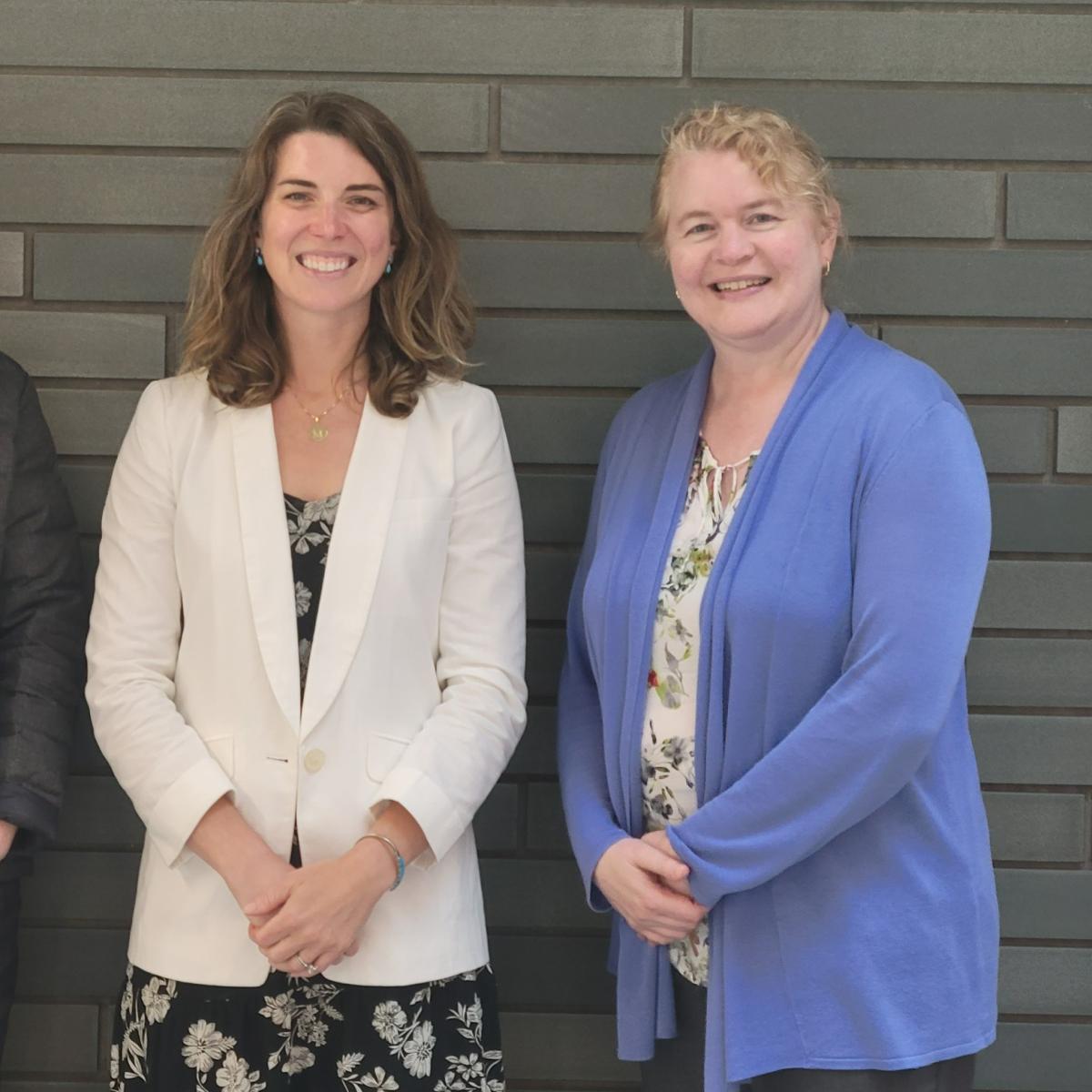
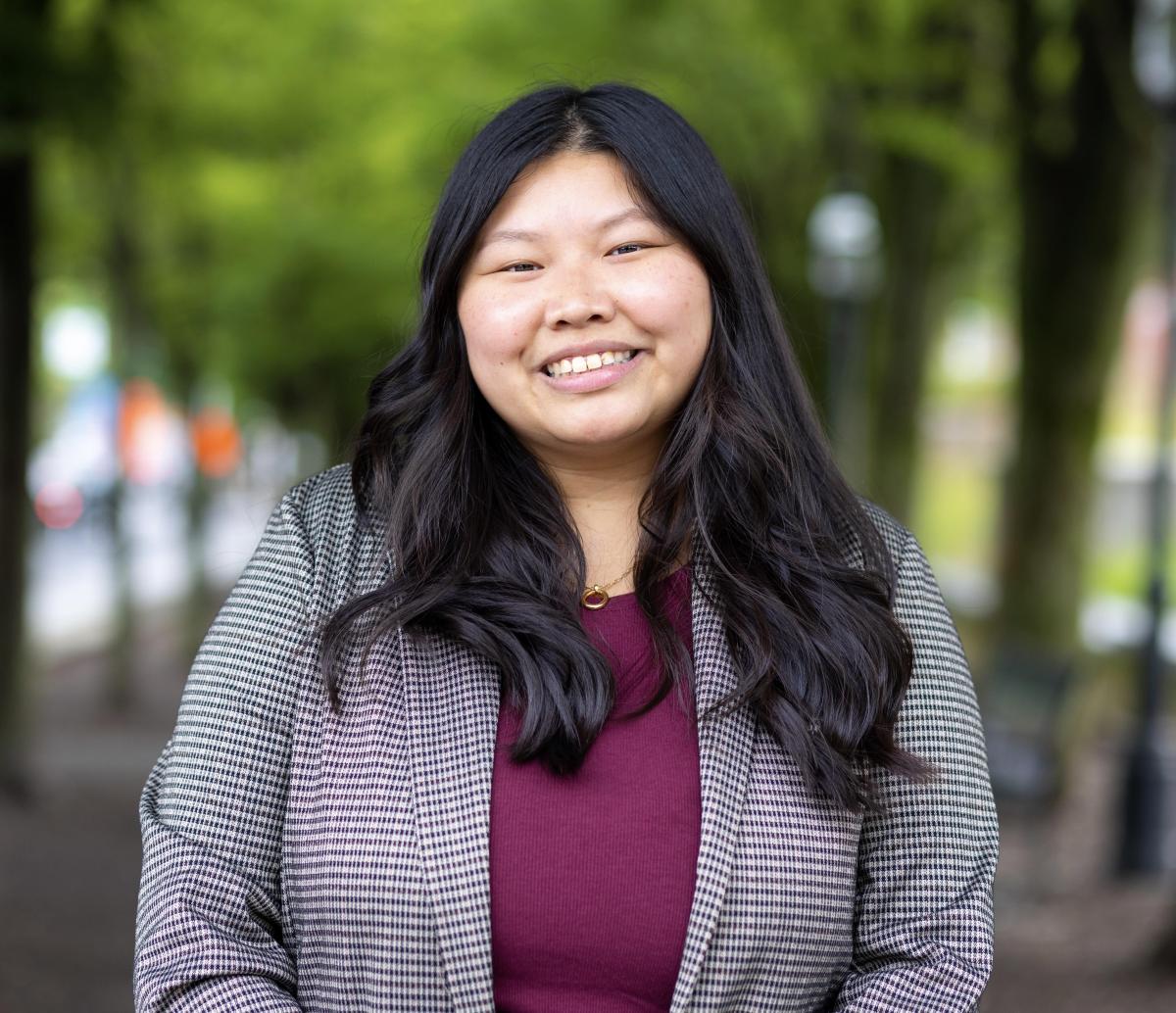
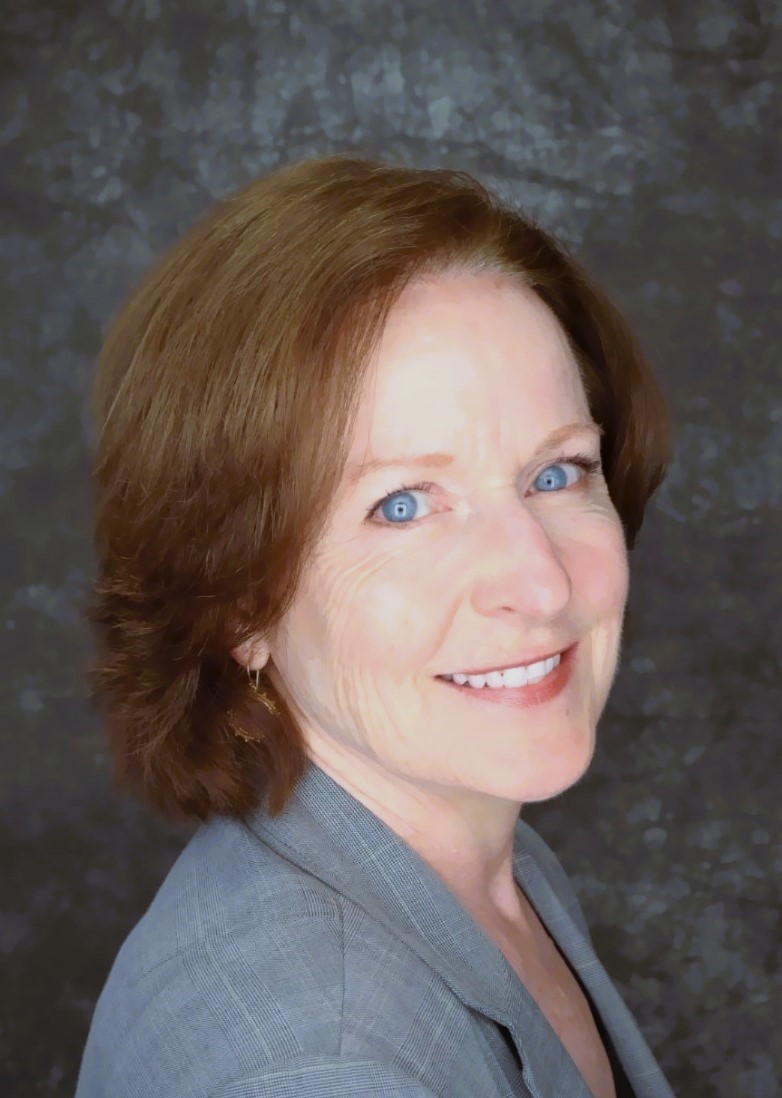
(Pictured from left to right): Editors Katie Cohen and Joan Dalrymple pose for a picture at Ramapo College's George T. Potter Library in Summer 2022; Natalie Lau; MaryAlice Rocks.

